#Intergenerational Bonding
Explore tagged Tumblr posts
Text
Sam Reich as a millennial "alt" comedian really overestimated the audience's response to Eric Wareheim, which as a millennial comedy fan myself I only know from reading comments, because I did have the expected response. I hope some people discover Tim & Eric though, it's iconic.
#Tim and Eric#Eric Wareheim#dropout tv#Game Changer#Ratfish#millenials#intergenerational bonding#comedy#adult swim#sam reich
54 notes
·
View notes
Text
What TV Shows Did You Watch as a Kid? Nostalgic Delights from the 90's
Remember the good old days with this trip down memory lane as we dive into the iconic TV shows from the 90’s that filled our childhoods with joy and adventure. Introduction Ah, the 90’s – a golden era of television that bestowed upon us a treasure trove of captivating shows, which in turn illuminated our youthful days. In the following discourse, we shall traverse the nostalgic landscape of our…

View On WordPress
#90&039;s TV Shows#Animated Adventures#Beloved Characters#Childhood Memories#Creative Imagination#Cultural Impact#Cultural Phenomenon#dailyprompt#dailyprompt-2042#Educational Programs#entertainment#Family-Friendly Content#Formative Years#Generation Gap#Heartwarming Narratives#Iconic Cartoons#Intergenerational Bonding#Kid Shows#Live-Action Classics#nostalgia#Nostalgic Delights#pop culture#Streaming Classics#Timeless Appeal#TV series#Valuable Life Lessons#Youthful Days#Youthful Entertainment
0 notes
Text


11 notes
·
View notes
Text
Family and the Institution of Alice Academy
Was thinking about this ever since someone (I forgot specifically who, sorry) posed a question like this in the GA discord, asking about (I think) Natsume's extended family or something like that. It was a really interesting concept that I've been thinking a lot about since it was brought up, so here are the thoughts I've accumulated. I'll try to be concise but I have a LOT of thoughts and my brain is messy.
My general opinion at the end of all this thinking I did is that I don't think Academy students typically have very close familial ties after graduating.
I think the most apparent reason for that would be that students are expected to graduate when they are twenty years old. Our main four are exceptions to the rule, coming to the Academy pretty late in life. Most children are taken early, as toddlers or even babies. Natsume, Ruka, and Hotaru's families did all they could to avoid Academy scouting. Mikan was entirely accidental--if she had never met Hotaru, she might have never even found out she was an Alice to begin with. That being said, most kids were separated from their families at a very young age, only to be allowed to reunite with them once they're already adults. For many students, they've been away from their parents for close to two decades.
On top of that, the Academy doesn't allow visitations or phone calls and severely restricts letter communications. Only one child from each class is allowed to return home for one week each year, and that one week does not do much to make up for all the time spent at school.
My point is that by the time students are allowed to see their families again, that familial bond has already been severed, for all intents and purposes. That feeling of closeness and protection no longer exists. Students will feel more closeness and connection to their classmates and even to their teachers than to their parents or siblings, and as a result, I can imagine many graduates not even bothering to visit their families.
While I was pondering this, I made the connection between Academy students and the real life example of a similar situation with Janissaries from the Ottoman Empire. Basically, Janissaries were children stolen from the subjugated people under Ottoman rule. They were taken for the purpose of a "child levy", also known as a "blood tax." Some children were even willingly given by their families due to the possibility of socially advancing, and because the children were promised first class status (sound familiar?). Essentially the children were taken, forced to comply with Ottoman standards and traditions (including forced conversions and circumcisions), and then trained for military service. These soldiers would actually end up being incredibly loyal and efficient, despite likely never seeing their families again.
(Edit: forced circumcisions are particularly heinous when you consider that the children were typically at least 10 years old at the time they were taken.... so.... uh.... not pleasant.... But also interesting that the Janissaries were typically much older than the Alice children at the time of being taken.)
That level of separation doesn't endear ties; it severs them. These Janissaries--very often forcefully taken from their families--ended up growing up with very little connection to their parents or siblings. The feeling of belonging to their previous communities was gone. Absence does not always make the heart grow fonder. This was done as a means of creating a strong military force but also to disillusion subjugated communities and tear away their hope. Their children could always be taken; their communities could always be crushed, even without the use of physical force. It's a very effective tool to oppress a group of people.
(There's actually a lot of similarities between Academy children and Janissaries beside the separation of children from their families. They were also paid for their service and were high ranking; the Academy students are given an allowance and many of them, despite being stolen from their families, have a sense of superiority over non-Alices. They feel like they are treasures, and are of higher value and rank. Additionally, Academy students, especially in the DA class, are highly trained and efficient child soldiers, much like the Janissaries. Janissaries are actually a super interesting historical topic and are worth looking into!)
We can even see the effect of this distance when Yuka escapes the Academy and runs away to her family. Yuka was essentially sold to the Academy, with her parents trading her in exchange for money and status. She was very young, far too young to really understand that her parents had abandoned her. As a result, she romanticized her bond with them, and the longer she was separated from them, the more that bond became fantastical. She made many attempts to escape the school to reunite with her parents and she fantasized about seeing them again. When she finally is able to, it's nothing like she imagined. They're cold, and unfamiliar. They don't recognize her. She doesn't know her brothers. They're related, but there's no real connection.
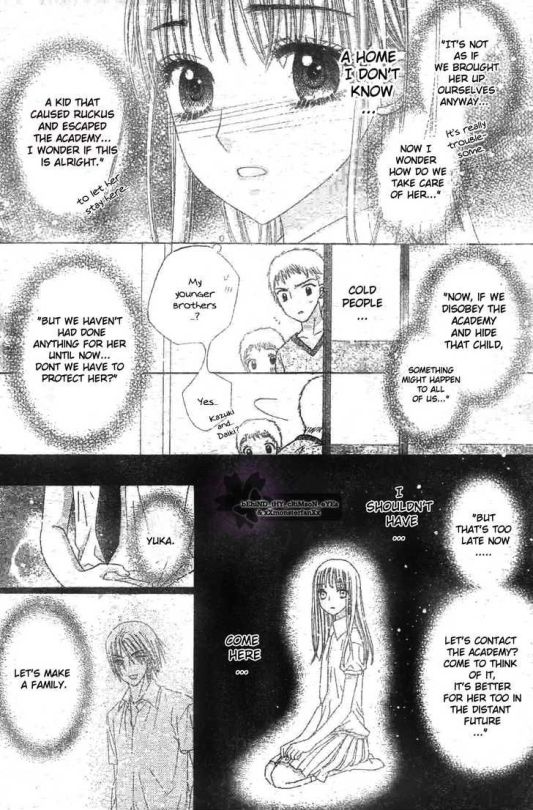
"I shouldn't have come here."
Yuka's is an extreme example, but I'm sure she's not an exception. For most Academy students, the almost 20 years of separation from their parents would be too much to ignore. They would not recognize each other, or be close. I'm sure many parents did not sell their children like Yuka's family did, but the bond between child and family had not been nurtured the way it should have been, resulting in coldness and distance.
Because of that, I doubt most students even bother seeking their families out, or even if they do, it's to visit a few times before starting a new life with a career. That familial bond, now broken, is difficult to repair. The connections people often feel with their families or hometowns is something Academy students instead feel with each other. They are all Alices, all in the same boat together. That feeling of superiority that many kids feel means they view each other as on the same level, and I'm sure that could interfere with family connection as well.
Thus, I don't think there's many multigenerational Alice families out there with close bonds. I don't think families like Natsume's have strong ties with grandparents and aunts and uncles and cousins. Even the sibling bonds at the Academy are stunted, with the Imai and Shouda siblings being the prime examples of that.
The Imai siblings have a significant age difference, yes, but additionally the Imai parents had a very different approach to Hotaru after seeing what happened with Subaru. They refused to hand her over as easily, wanting to show her important things in life and build happy memories for as long as they could. Even when Hotaru does enter the school, it's more than six months before she even comes across her brother, since the high school and elementary school are not integrated with each other and they do not belong to the same ability class. Similarly, the Shouda siblings are in different ability classes but they have a much smaller age gap. Despite this, Sumire refers to her brother very respectfully, indicating that there isn't a particular closeness.
The Imais fight against this divide, and put in genuine effort into rebuilding their relationship, but it's a difficult process, and one they struggle to admit to for a long time and for various reasons. Familial closeness is not encouraged, not even within the Academy.
(Though Natsume's bond with Aoi is exploited and the school does rely on him caring for her to take advantage of him, but ultimately he is kept from seeing her. Thus, that bond is also severed despite being exploited.)
Additionally, it would make sense to me if many Alice graduates decided to, upon having children, avoid scouting, like Natsume's parents did, and thus ended up moving around a lot to escape Academy notice. Moving around like that and laying low means that you're not going to be hosting huge family reunions or inviting relatives over often, even if all the other points were moot.
Finally, I think all this creates further obstacles for Yuka's wish to "have a family." At some point she says that, for normal people, the desire to settle down with someone and start a family is a pretty modest goal, but for Alices it's almost impossible. Escaping from the school, or even graduating, is a struggle. And you can have a kid, but it's likely that child will be taken from you, just as you were taken, and by the time the child graduates, they will have no connection with you. Wanting to be a potential grandparent, for example, might seem like a definite impossibility, since being a real parent is impossible.
It's even more proof that the Academy exists as an institution to subjugate and undermine Alices, as children and then as parents. Ultimately, an Alice never has control, not as a child and not even as an adult. The pain doesn't end once you've graduated; in fact, it never does.
#gakuen alice#ga#my meta#ga meta#azumi yuka#hyuuga natsume#alice academy#yes there are kids who lose their alices and thus leave early#i think those kids might find more luck reestablishing familial bonds#also there seem to be a few powerful and intergenerational families within the alice system#but those families seem rather to be in control of the school... theyd be the puppetmasters essentially#and thus might not be as victimized as normal families like natsume's.... he clearly has no power or control in the alice world AT ALL.#so yes i think those big and powerful families are exceptionally rare and thus not as relevant to this post#theyre not 'subjugated' like most other alice families are... idk how else to phrase that#feel free to hmu with ur thoughts on this topic! its super fascinating to me as yet another example of the academys many atrocities#and one i hadnt even properly thought of to this degree until recently!#its so very fun to discover and consider new aspects of ga lore or implications in the story! i love it so much!#i just cant see myself ever getting tired of analyzing this manga#i didnt actually narrow in on any one character but yuka seems to be the best example of my points so i focus on her the most#if u want we can talk abt other characters and families and discuss how the academy affected those bonds!#what an interesting concept.... im having a blast thinking abt all this rn
34 notes
·
View notes
Text


just explained to my godmother who danny ocean is after making lunch and getting my nails done
3 notes
·
View notes
Note
*twirling my hair* do you like cassandra cain? if not, do u have a moment to hear about our lord and saviour cassandra cain?
CASSANDRA CAIN MY LOVE!!! She's definitely the batgirl I've read the most in terms of full issues, the first 30-ish issues of her solo by Kelly Puckett Scott Peterson and Damion Scott had me hooked and I binged them but fell off after Horrocks came on (nothing against him, he was just given an editorial mandate to make the book more romance focused and it turned me off because it felt so ooc for Cass to me lol. I do own some of the issues he wrote tho! I like the ones with art by Rick Leonardi). I'm not really caught up with modern comics (ish??) And I'm not reading anything dedicatedly but I hear she's in a new original book teaming up with a magic user? Neat! Good for her. I love her in the shadow of the batgirl graphic novel (IT'S SO GOOD)
#ramblings of a lunatic#asks#^ sorry had to be tistic about things for a minute#i loved damion scotts artwork for her solo series sm (especially the later moee stylized stuff even though i recognise how bonkers-#-the proportions are i can't help myself. i like women and i love stylised art like that)#his stuff was surprisingly influential on my own art. idk how much it shows these days but It's There#this hasn't mentioned anything about what i love about cass as a character but like. it's the same as most people who love her man#i love her self destructive dedication to redemption i love the guilt she's saddled with-#-and how it's juxtaposed with her committment to kindness and justice i love how she's the fucking best and she knows it#i love how the relationship between her and oracle was an intergenerational mentorship between two disabled women#and her gay ass bond with stephanie (who in all fairness may be my fav batgirl???-#-but I've also read wayyy less complete issues of her compared to cass due to the differences in how their respective series' are-#-formatted but like. what i have seen i tend to love. i love u stephanie)#but also dear god i do not wanna get reeled back in because nothing the industry ever does will please me the way the ideas in my head do#and I'm constantly at war with myself reading stuff#also it's just hard to get back in when you've been gone with a while it's all just very difficult#but i am rotating cass and stephanie in my brain like a microwave waiting for someone to explode#plenty of people smarter than me have already said this but cass should team up with jason and they should both seethe#he wants to kill. she keeps breaking his bones if he tries it. they're both brushing each others philosophies off bc of where they exist-#-on the batfamily ''kill/no kill'' binary even though they share similarities of wanting to be batman but Better#(jason via controlling crime and killing criminals and her with her ultimate dedication to the symbol and superior combat skills)#(also keep in mind i just watched utrh but haven't read a rhato comic in yonks. so if this is an outdated jason characterization+#-then whoopsie <3)#Jason's dedicated to pushing buttons and poking holes in batmans philosophy and cass is great at reading ppl-#-and sometimes in her series she then performs a limited psychoanalysis of them and tears them apart#(at least she did for shiva) I'd love to see her do that to jason. break him so i can tape his sad lil ass back together#this is getting away from me. anyway no need to proselytise. I'm a former alter boy round here
7 notes
·
View notes
Text
another wonderful day of watching turning the tables and bridging the gap
#i love intergenerational bonding through music#the dad from turning the tables is also so openminded and sweet
0 notes
Text
babysitmoms <3
#night went from a walk for my mental health to munchies#smth smth being served cava by a piol#smth smth yes i will smoke weed with these 40 year olds#this is the intergenerational queer bonding they talk about xp#bless#rlly not how i thought this day would go#felt rlly bad for line 80% of my day today lmao#but yeah#lesbian babysit moms got my back#always
0 notes
Text
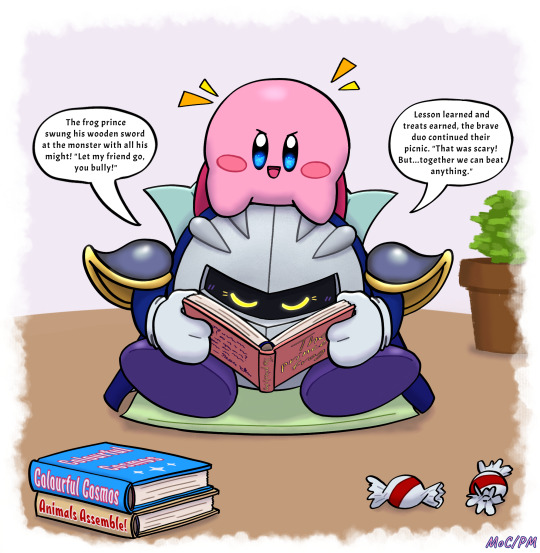
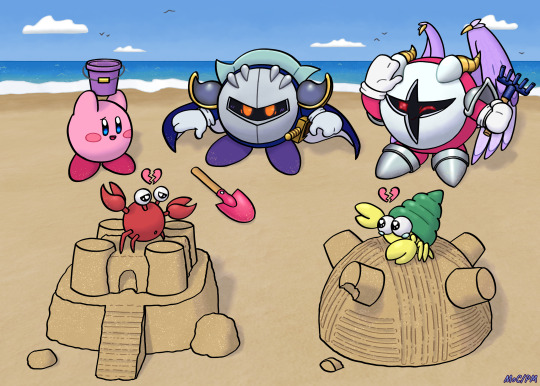
From: @pinkestmenace
To: @dragonitepaw (Twitter) (Instagram)
Message from Santa: "I love your fics and art so much! They're so cute! Even though we have very different interpretations of Kirby and Meta Knight's bond as game-based intergenerational friendship versus anime-based father and son, I always love seeing your Metadad/Papa Knight stuff. I hope I did them justice."
144 notes
·
View notes
Text
Yet Another Dead Boy Detective Fic Rec List
Part 1 | Part 2 | Part 3 | Part 4
I've been having so much fun with these, so I've decided to make another! See above for links to my other fic rec lists. ♥️
Like We're Gonna Die Young (Again) by RoseGanymede95
The latest installment in the superb Codependency World Cup series has the boys attend a nefarious house party and grapple with old frenemies, 90s fashion and temporary amnesia. Also fleshes out their achingly sad backstories, but compensates with the triumphant return of Pierre the rabbit.
When I Picture You by Gruoch
Charles gets braceleted by the Cat King instead of Edwin and receives his heart's desire... being alive again. This author has a special gift for taking fun sounding premises and turning the angst up to 11. So excellent.
young blood (never get chained) by ghostinthelibrary
University AU in which half-demon Charles intervenes in Edwin's ritual sacrifice and inadvertently binds their souls together... I'm genuinely obsessed with this AU, it has so much potential for tons of delicious tropes. Human!Edwin getting a crash course in supernatural shenanigans! Soulmate vibes!Found Family! Demon lore! What's not to love??
Ghosts and Monsters by justafandomfollower
Charles is also sacrificed and the boys meet in Hell! Fantastic premise and executed really well. I loved Masterful Edwin taking charge and protecting Charles while inwardly despairing. Highly recommended.
back to back they faced each other by ShanaStoryteller
The Night Nurse has a theory about how Charles was able to rescue Edwin from Hell so quickly... I'm genuinely shocked I haven't recced this one already. Sorry guys, I forgor. Anyway, this has interesting "Guardian" (angel?) lore, great meta and we even get some temporary amnesia as a treat.
boyfriend jacket by skadii
5+1 times Edwin borrowed Charles' jacket. The characterisation is on point, and it has some great OCs (Kyle the snarky seeing-eye cat!) and really sweet payneland moments. Plus Charles' jacket doing its most to annoy the Cat King.
Looking Like the Sunrise by letters_of_stars
Edwin thinks he's cursed so he and Crystal must team up to solve the case of his Mysterious and Suddenly Appearing Rizz. Funny and sweet friendship fic with some quality Edwin-Crystal bonding and discussions of trauma.
The Case of the Anonymous Confession by Mayarenerose
College AU featuring Charles posting an 'anonymous' online confession about his complicated feelings for his bestie. The closet is glass, but Edwin is oblivious and Crystal is in pain. Cute and funny epistolary social media fic done really well.
the middle of something wonderful by KiaraSayre
Does what it says on the tin and gives us a trope salad of cosy vignettes, including a time loop, temporary amnesia, sudden corporality and Crystal and Edwin trying to get a good grade in Party. Wholesome.
My heart is like a haunted house (series) by halffulljampot
Charles (unknowingly) befriends the ghost of Edwin's mother and constantly gushes to her about his amazing best friend/boyfriend. Beatrice is a great OC and it's just nice (though extra tragic) to read a fic in which Edwin had loving parents. Read it for Family Feels and wholesome intergenerational friendship.
the first rule of fight club by e_va
The boys are captured by an evil underground fighting ring. The fic is from Charles' PoV, so the prospect of having to fight Edwin was especially stomach-churning. Still, we get Edwin being a badass and a brilliant surprise cameo I don't want to spoil.
The Case of The... by sophisticatedyet
Edwin borrows Niko's negligee and Charles' brain breaks. There's also a case and giant squids, but Charles' Distracted By The Sexy crisis is the main (hilarious) event.
in those heavy days when love became an act of defiance by aletterinthenameofsanity, JUBE514
Daemon AU and first meeting fic! Loved the worldbuilding, insightful character work and lovely use of Greek mythology. Honestly, this fandom needs more daemon AUs.
spinning around and around in an ocean of grief (your ladder came down to the sea) by Ingi
Prequel to DontOffendTheBees' excellent College AU, expanding on the boys being alive and in school together. Also has its own prequel about their first meeting from Edwin's point of view. This one, though, is a Charles' Bisexual Journey/Feelings Realization fic. So lovely.
head in the clouds but my gravity's centered by shadowquill17
Face Touching: The Fic. I just love non-sexual intimacy in fics and this one is so tender. I also love Accidental Kissing and Feelings Realization so my cup runneth over.
i don't want to rest in peace by handwrittenhello
Different First Meeting fic featuring Poltergeist Charles! Loved the concept, even though it made me sad.
the great snogging debacle of '95 by thatgayprince
Edwin disguises himself as a girl and Charles starts and then defers a sexuality crisis for 30 years. Funny, steamy and emotional.
a beautiful day to say goodbye by ofstitches
The agency take on the case of a depressed house. This is another bittersweet Edwin backstory fic with discussions of grief.
Smitten in the Stacks by cordelianoir
Adorable prequel to lolotr's equally adorable library AU. Meet cute featuring (platonically married) Dad!Charles crushing on the hot librarian who leads Children's Storytime.
Jenny Green: Butcher, Hot Mess, Reluctant Queer Elder by Money_Maker
Jenny-centric fic! The focus is on Jenny and her financial, mental and emotional struggles post-canon, but mentoring Edwin through his queer self-discovery becomes a big part of that. This turns into a really sweet friendship, plus Found Family Feels and some fun outsider PoV of the boys' dynamic.
I've always got more recs so watch this space! ❤️
#dead boy detectives#fic recs#fic rec list#payneland#chedwin#fic rec friday#payneland fic#painland#payneland fic recs#dbda#dead boy detectives fic recs#fanfiction#my fic recs#my recs#dbda fic recs#edwin payne#charles rowland#jenny green#crystal palace#niko sasaki#dbda fic#charles x edwin#otp: love of my afterlife#paineland#payneland fics#fandom#dbda fandom#you're all amazing
191 notes
·
View notes
Text
Guilt : the fact of having committed a specified or implied offence or crime.
The ability to feel guilt and recognize wrongdoings is an important aspect of self-awareness and morality. It often leads to personal growth and the motivation to make amends or change behavior. On the other hand, someone who can't comprehend what's wrong may lack these qualities, which can be problematic in social interactions and personal development, it's also important to understand the underlying reasons for these differences. Some people may struggle with recognizing wrongdoings due to psychological or developmental conditions. Compassion and understanding are key in addressing and helping individuals improve their self-awareness and mental development.
So one aspect of a healthy and developed mind is the ability to recognise wrong and if the wrong is done on account of them, then feel this 'guilt'. It's evolutionary way of maintaining one species from avoiding mistakes that could wipe them out.
On the topic of improvement of the west. Let's talk about this 'white' guilt:

Why so many people are talking about white guilt, well its too only that they know about from white history. The real history however
So now that we know that. White guilt is actually healthy for the west. But what to do about it ?
The answer to that is kinda clear but let me explain, the potential benefits of intercultural and interethnic bonding, particularly in the context of addressing guilt and promoting social cohesion.
By having non-white family members!
Intercultural and interracial relationships,can have a positive impact on individuals and society as a whole, including:
Breaking down stereotypes: By forming close relationships with individuals from different racial and ethnic backgrounds, people can challenge and overcome their own biases and stereotypes.
Fostering empathy and understanding: Intercultural and interracial relationships can help individuals develop a deeper understanding and appreciation of different cultures and experiences.
Promoting social cohesion: By integrating into white families, immigration families can become an integral part of the community, promoting social cohesion and reducing tensions between different racial and ethnic groups.
Intergenerational relationships can also play a significant role in breaking down cultural and racial barriers, as:
Children learn from their experiences: Growing up in an intercultural or interracial family can help children develop a more nuanced understanding of different cultures and experiences.
Families become more inclusive: Intergenerational relationships can help families become more inclusive and accepting of different cultures and backgrounds.
Societal attitudes shift: As more people form intercultural and interracial relationships, societal attitudes can shift, becoming more accepting and inclusive of diversity.
So you're probably getting where I'm hinting at, but let's see some more facts
As you can see the energy consumption per capita of western countries is exponential compared that to any third world country. It is unfair isn't it. An average White person consumes 16x times more energy than an African person. But who's paying the price because of it ?
https://www.popcenter.umd.edu/research/selected_research/research_1380209290129
So essentially our earth has fixed patterns of air currents, damage done to the climate gets carried to places that are already hot. So the hotter and uninhabitable place gets destroyed first and then it affects the west. West is geographically the most suitable place to sustain life because of these weather patterns.
So 16x times more power consumed by a person from the west ruins the lives of African places 16x times faster.
Few years from now many African places will be uninhabitable due to all this.
https://wmo.int/news/media-centre/africa-faces-disproportionate-burden-from-climate-change-and-adaptation-costs
And that too is understandable if there wasn't so many free space in western countries
youtube
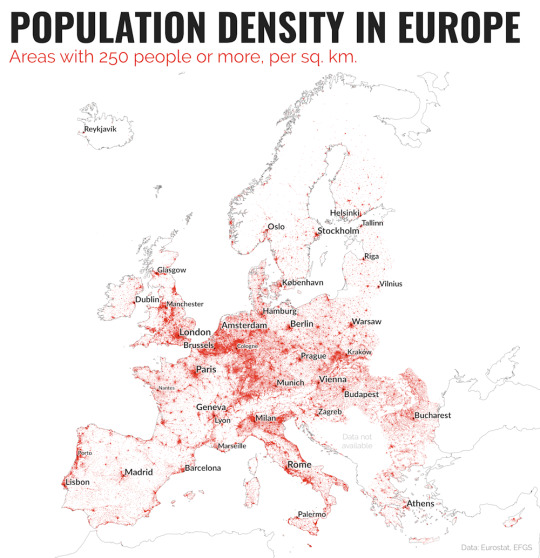
It's essentially gatekeeping
At the expense of African people. And let's not talk about reparations
27 Sept 2020 — University of Illinois Urbana-Champaign economist Larry Neal estimated in 1983 that only America owed $1.4 trillion in reparations which would amount to approximately 4.2 trillion today considering the least rate of inflation.
So what's the solution?
Europe needs people for its dying economy and low birthrates and aging economy and Africa has a problem of overpopulation and lack of uninhabitable places to live. The solution is pretty simple.

Open borders.
Any one who wants a better and fair life

Should be welcomed with open arms. It is their right!!!
It will provide cheap labor, more workforce, more opportunities, genetic diversity, cultural diversity, inclusion, profession, linguistic evolution, demographic evolution and a thousand good things. But resistance to their right can cause bad things to both the demographic, and the white media is feasting on this by presenting it from their side. So that begs the question why resist this if it's beneficial to the whole world? The answer is population growth means
per capita energy consumption will decrease
job scene will be more competitive, the more deserving will win
Ethnic homogeneity loss( that is the caucasian race will become darker with each generation)
No more white privilege
Beauty standards shift
Per capita wealth will dilute with the growing demographic ( the generational wealth they made from the backs of Africa)

GDP for the countries will bloom despite exponentialper capita GDP loss
European black people will have access to better standard of living
Population bloom of Africa can be controlled with this demographic shift
In short, A large portion of the world are kept from getting better lives because a certain group of people are greedy. Sure this will result in making the west more like the developing countries, but 16x african families will have better lives in expense of a white person losing a few privileges. Ofcourse it'll rile up the hot blooded ones to make some scene, which isn't the fault of the immigrants but rather the natives. No colonization, no slavery, no genocide ( like you people did). Just a peaceful solution. So my advice to all the racists and people suffering from white guilt please be an

#making the world a better place#beauty standards improvement movement#africanization#afrofuturism#black europe#end white race#no more whites#fuck the whites#black is better#whites are evil#refugees#anti white#refugees welcome#open borders#end white supremacy#white privelage
76 notes
·
View notes
Text
You love taking care of people: Fine Dining in the Time of Late Stage Capitalism
CW: this post discusses toxic and abusive workplaces and makes brief mention of institutional child abuse and intergenerational trauma. I might also talk about global systems collapse, for shits and giggles. Also this is another long one. You know the drill. Lets have a cuppa. Also this is my last minute submission to Sydcarmy Week 2024 and the theme of “you love taking care of people”. Enjoy!
I have a confession to make to The Bear fandom:
The food is my least favourite part of this show.
Its not that its not interesting. It definitely is. I'm a home cook and for the most part, I enjoy cooking (when I can do it at my leisure and not like most mothers, while balancing the mental load). I just find all the other aspects of the show much more fascinating.
In fact, I think this show about a bunch of cooks in commercial kitchens is so popular not so much because of its take up of cooking but its unflinching and loving interrogation of grief and trauma, including the kinds that get passed down through families.
The truth is, I've also never been overly excited about the world of "fine dining." I grew up in a large, Tamil family and so our meals were big, shared and not necessarily conducive to the minimalist plating preferred in exclusive, "gourmet" spaces:
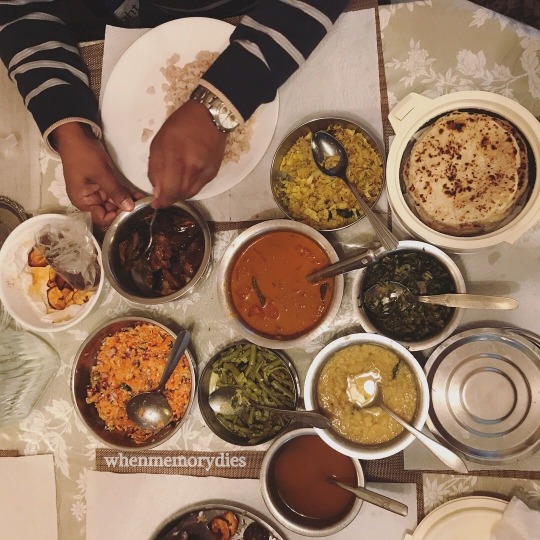
Photograph is mine, delicious Jaffna Tamil spread is the handiwork of my great aunt (Kunchi Ammamma or “little maternal grandmother”), arguably the best cook in our sprawling, extended family.
As tumultous as family life could get, I often experienced meals (that, lets be real, were almost always prepared by the women in my family) with my loved ones as a happy experience. I mean we also had our share of blow ups at the kitchen table but what was always consistent was the love and care that went into the food that we were given to eat. It was woven into the rich and complex flavours that made up the curries, varais, and sambals we had on our plates (and that even now, make me salivate just thinking about). It was spread throughout the warm, coconut-y rotis and steaming rice and puttu we ate with our hands and used to mop up all that spicy, flavourful goodness.
And if there's one question I heard more than any other from older family members growing up, it was "ni sappittiya?" ("have you eaten?"). More than "how are you?" and definitely more than "I love you." As with many Global South cultures, for Tamil folks, food is used for nourishment but also as a primary means of conveying deep care. Obviously Tamil people don't have the monopoly on using food to show their affection (or even the monopoly on using food to replace actually saying the words "I love you" lmao). Food has been found to increase interpersonal closeness and can also contribute to emotional regulation. Feeding a child is one of the first means of bonding between parents and children. Food also plays a big role in the course of romantic love: as a basis for first dates and future time spent with a partner, and of course also as an aphrodisiac.
As Cesar Chavez, Mexican-American civil rights activist, labor organiser and co-founder of the National Farm Workers Association (which later became the United Farm Workers union) said,
The people who give you their food, give you their heart.
You love taking care of people
Conveying care and love through food is a theme that comes up repeatedly in The Bear. Recall 1x02 Hands and the phone conversation with Nat and Carmy:

Natalie: Chefs always say a big part of the job is taking care of people, right?
Carmen: Yeah, yeah. No I guess.
Also recall an almost identical bit of dialogue between Carmy and Sydney, under the world's most famous table that had absolutely nothing wrong with it in 2x09 Omelette:

Carmen: You love taking care of people.
Sydney: Yeah I guess.
Here's some further mirroring between Sydney and Carmy about giving people joy through food. Recall again the phone call between Carmy and Nat in 1x02 Hands:
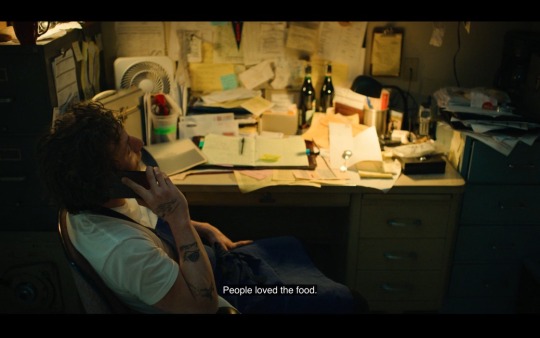
Natalie: When did the breathing problem start?
Carmen: I think maybe sometime in New York. I was throwing up every day before work.
[...] Chef was a piece of shit.
Natalie: Then why'd you stay there?
Carmen: People loved the food. It felt good.
Also recall the conversation between Sydney and Marcus in 1x08 Braciole:
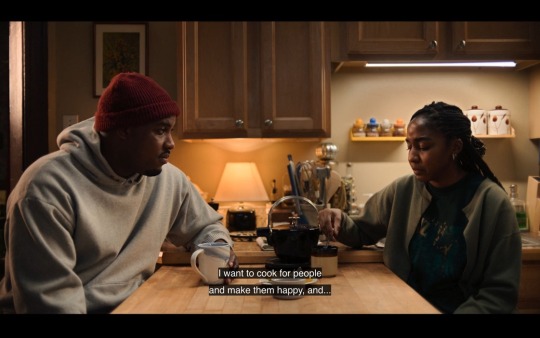
Sydney: I want to cook for people and make them happy, and give them the best bacon on Earth.
Be gentle with each other, so that you can fight stronger together: seasons 1-2 of The Bear
As rough and tumble as The Beef was, the clear throughline in season 1 (when The Beef was in operation) was the importance of the relationships and care between the show's characters. This was also the case in season 2 where the majority of the season was spent in the context of renovations and training prior to the opening of The Bear (in that season's last episode).
In season 1, we had Carmy leading the crew at The Beef by being patient, clearly explaining technique and positively reinforcing his staff's work.

Above left: Carmy walking the BOH crew through making Donna Berzatto's Lemon Chicken Piccata in 1x05 Sheridan. Above right: Carmy encouraging the crew to keep up their current pace in 1x06 Ceres.
We saw him working with Sydney, supportively encouraging the team to go further, to push themselves. We even saw Carmy at ease enough to talk about Mikey and his mother while at work. We had a Carmy showing us how integrated he can be.

Above: Carmy and Tina in 1x05 Sheridan
Heck, we even had a Carmy who wanted to get a compost installed at The Beef for processing food so that it didn't go to waste. Recall this golden bit of dialogue between him and Sweeps in 1x01 System:
Carmen: Eh yo Gary, you set up a compost for me today, Chef?
Sweeps: After I do my thing in the place.
Carmen: That's very clear. Thank you.
We had a Carmy who had time. Recall the below scene in 1x02 Hands before Sydney gives Carmy her draft business plan for The Beef (that she drafted on her own initiative and time to support his family's struggling business. If this man doesn't hurry up and fight for her in s4 istg...):
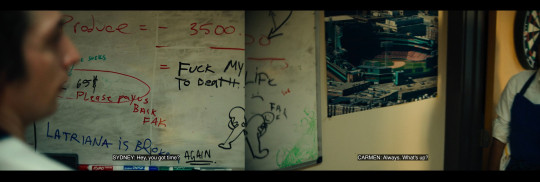
Sydney: Hey you got time?
Carmen: Always. What's up?
Similarly, we had Carmen in the first episode of season 2 making time to talk to a clearly distraught Richie:
Richie: Yo you ever think about purpose?
Carmen: I love you, but I do not have time for this, alright? *starts to walk up the stairs out of the basement*
Richie: *Nods, looks dejected, sniffs*
Carmen: I have time for this. *comes back down the stairs and sits with Richie*
Most pointedly in season 1 we had the conversation between Sydney and Carmy in 1x03 Brigade which lays the blueprint for their joint vision for the restaurant and which should have acted as a touchstone for both of them in season 3:

Sydney: You know, I think this place could be so different from all the other places we've been at. But in order for that to be true, we need to run things different.
When I said I didn't think that the brigade was a good idea, you didn't listen. And its not that you told me that I had to. [...] But you just didn't really listen and if this is going to work the way that I think we both want it to work [...] I think we should probably try to listen to each other.
Carmen: Yeah. You're right.
Sydney: The reason I'm here and not working somewhere else, or for someone else, is 'cause I think I can stand out here. I can make a difference here. We could share ideas. I could implement things that make this place better. And I don't wanna be wasting my time, working on another line or tweezing herbs on a dish that I don't care about, or running brunch, God forbid.
Carmen: *nods vigorously*
In season 2 while The Beef undergoes its facelift into The Bear, some of the show's most beautiful moments were when characters displayed their faith and trust in one another. Recall 2x01 Beef where Sydney asks Tina to be her sous chef, or 2x02 Pasta where Sydney and Carmy send Tina and Ebra to culinary school (and Tina's unwavering belief in and support for a nervous Ebra once they get there), and 2x03 Sundae and 2x04 Honeydew where we see Carmy and Sydney send Marcus to Copenhagen to stage with Chef Luca and build up his skills as a pâtissier.

So what happened at The Bear?
Season 3 of the show has been the most divisive of the series, with its preceding two seasons being almost unanimously adored by fans and critics alike. There's been a lot of debate on here and elsewhere as to why this is the case. What appears to be a dominant line of reasoning in this regard is the shift in Carmy and his approach to running The Bear as a fine dining institution.
At The Bear, we have Carmy as an Executive Chef who's berating, hostile, and blaming everyone else for his emotional state ("You guys are fucking killing me"). We have a Carmy who has taken "every second counts" to a point so minute that he has given up smoking because of the time away from the kitchen that it will cost him. We have a Carmy who has no patience for his team, almost all of whom have no experience working in fine dining before the opening night of The Bear. We see how out of sync Carmy and Sydney are ("Been off"). We have a Carmy who is reverting to patterns of behaviour that have been modelled for him by two of his abusers: his mother, Donna Berzatto and his previous boss, Chef David Fields, Executive Chef at Empire.
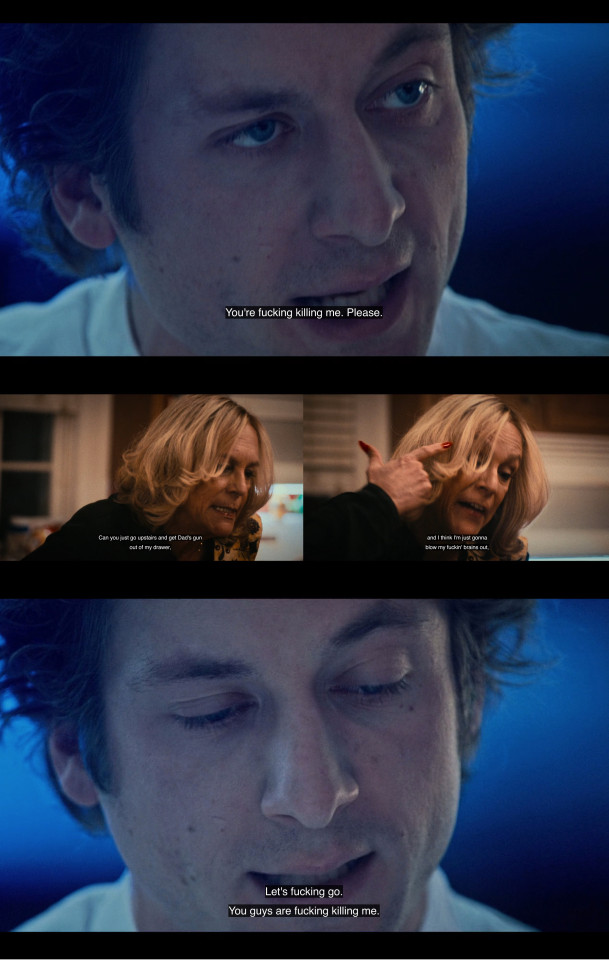
Perhaps second only to Donna and her stand in Claire, Chef David Fields' toxic legacy haunts season 3 of The Bear.
This is nowhere more clear than in the sheer wasting of food and money in season 3 epitomised by Carmy's insistence on changing the The Bear's menu every day (to quote Tina: "Every day, Joffrey Ballet?!") and his repeated throwing out of dishes he deemed "not perfect."
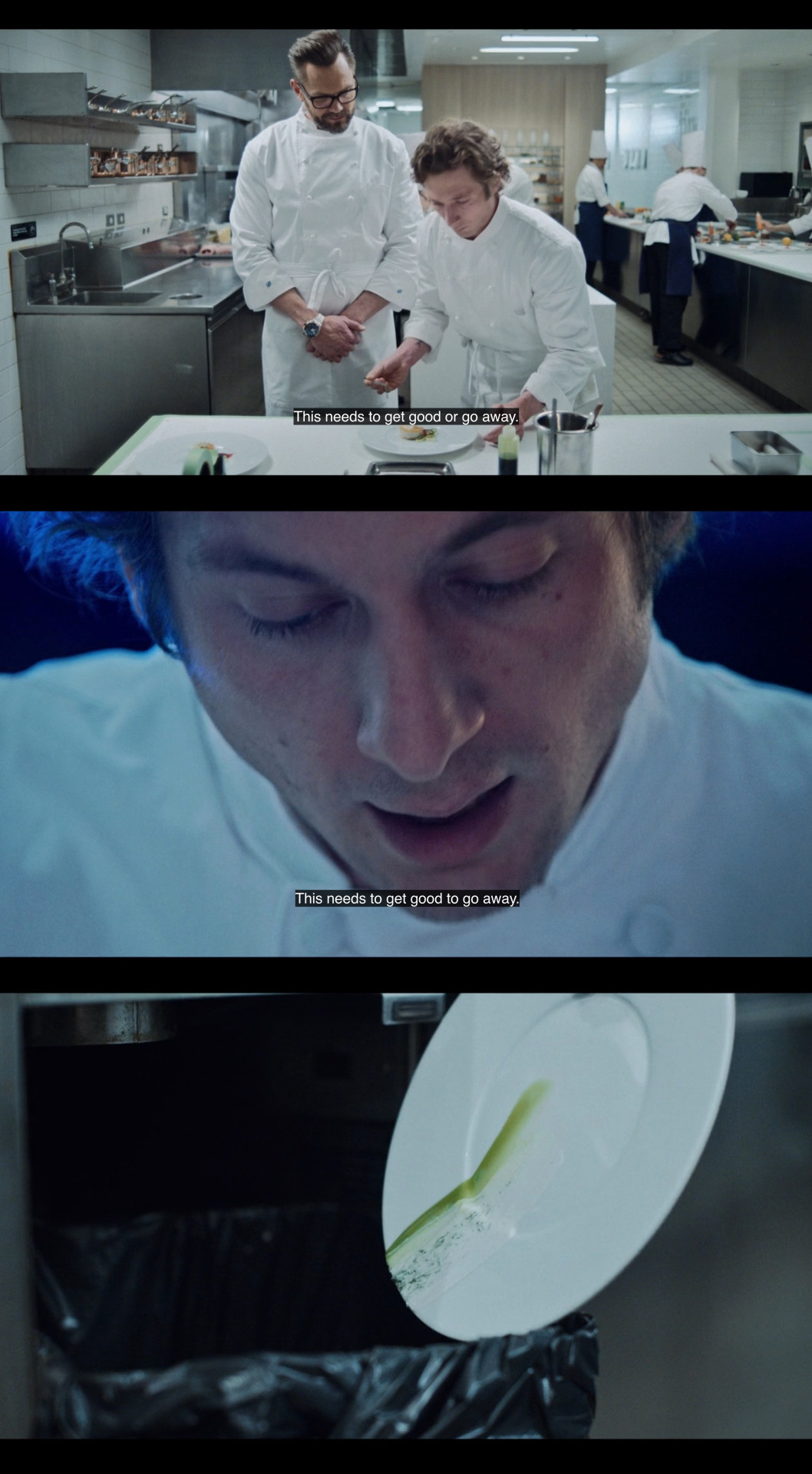
The waste did not go unnoticed by other characters on the show. Recall Natalie telling Carmy off in 3x03 Doors:
Natalie: The menu cost is out of control.
Carmen: Nat, figure it out.
Natalie: Oh. Oh. Figure it out? Wow.
Carmen: Figure it out.
Natalie: Why don't you fucking figure it out?
Carmen: I'm trying to use less shit.
Natalie: Okay, well, whatever you're doing, the R&D [research & development] of that, its fucking us.
Carmen: Well, we're using the best shit.
Natalie: Duh. Duh. Well, duh.
Carmen: Duh? Don't duh. No duh. [lmao this dialogue]
Natalie: Don't buy fucking crazy shit and then use it once, Carm. It's so wasteful. Duh! Duh, duh. Fucking duh, bro.

In episode 3x05 Children, Uncle Jimmy commissions The Computer to come in and run analytics on The Bear in an effort to get its costs under control (LOL at his assessment below, scrawled on the back of the dodgiest looking pie chart I've ever seen):

Computer: This sample is based on the month and a half we've been operating and does not take into account any funds spent previously on build, friends and family budget, other assorted fuckery.
Carmen: I mean, there hasn't been that much fuckery.
Cicero: Oh neph. You specialise in the fucking fuckery, bro.
Uncle Jimmy had plenty to say about Carmy's use of the former's funds (which Jimmy has duly invested in The Bear to support his nephew) including Carmy's decision to spend $11,268.00 on Orwellian butter (aka Dystopian Butter from the Fucking Rare Transylvanian Five-Titted Goat, lmao).
Even Carmy was under no delusions about how wasteful he was being this season. Recall his discussion with Sydney in 3x05 Children:
Sydney: You know what we should be doing?
Carmen: Produce vendor. You don't have to say it.
Sydney: Okay, I didn't say it then. I didn't say anything. Do you want me to say something?
Carmen: That I'm jamming us up 'cause we have a new menu every day and the economics aren't great?
Sydney: Well, I'm an accomplice, so...
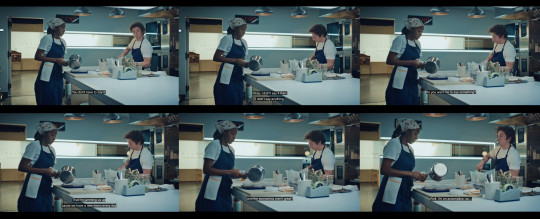
Note: the language in this small bit of dialogue struck me as being off. Why does Sydney needs Carmy's permission to say anything? Its like she knows that he knows the constantly changing menu and exorbitant expenses are an issue but doesn't want to say anything until Carmy brings it up first. @yannaryartside has a great break down drawing the analogy between Sydney's "accomplice" confession here with Molly Ringwald's (sorry I dunno what her character's name was) confession about facilitating her partner's substance abuse, during an Al-Anon meeting in 1x03 Brigade.
We have Carmy repeating harmful patterns of behaviour at work that he has picked up from his personal life (for example, from his mother) but also from his professional experience.
The world of fine dining that both Carmy and Sydney came to The Beef from was marked, by their own admission, with "complete and utter psychopaths" who screamed, pushed and yelled at their staff (recall Sydney's disclosure to Carmy at the end of 1x05 Sheridan) or "fucking assholes" (in the case of Chef David Fields), who made their staff "very, probably mentally ill." Sadly, this aspect of The Bear is not fiction. @moodyeucalyptus pointed out in this post that both Carmy and David Fields appear to have elements of their characters based off of real life fine dining wunderkind Chef Charlie Trotter: a Chicago-based chef known to be brilliant but who mistreated his staff so badly that he had two class actions brought against him (one by FOH staff, and another by BOH staff led by James Beard Award winner Beverly Kim).
There are other stories about the grinding nature of the fine dining industry which we'll get into below. We'll also look at a few stories of chefs who are leading a renaissance away from the "toxic, hierarchical shit show" that has historically plagued fine dining and who Joanna Calo and Chris Storer may have front of mind as they take us through Carmy and Sydney's journey together in season 4 (because as tempting as Shapiro's offer is, we know Sydney isn’t leaving Carmy). But first, we need to go further back in time to look at how the fine dining industry itself has created the conditions for a chef like season 3 Carmy to exist in the first place. Lets look at the system, baby (to quote Tina in 1x01).
The Bear's culinary ancestry: Chef David Fields and the Fine Dining Industry
I should say that I did not want to go too far into history with this post. After Carmen, Natalie, and the Berzattos, I was committed to trying to write shorter meta (/snort). But I'd be remiss if I didn't talk about the origins of fine dining, and before that, the rise of Europe as the base of "haute cuisine" (which itself is directly tied to its history of colonialism and...Empire *badumbum* @freedelusionshere has made the point that The Bear writers have given Chef David's restaurant the name Empire purposefully and they're not wrong). All of this informs the current state of fine dining today.
Though France is often credited as the place where restaurants began (in the 1700s), its been established that folks were eating in communal restaurant settings all over the world, including in China about 700-600 years earlier. The origins of western fine dining (the tradition that Carmy and Sydney have trained within) however, are synonymous with French cuisine and the efforts of Georges Escoffier (who Carmy name drops in 1x03 Brigade).
The French Brigade
Escoffier was responsible for developing the French Brigade system of organising kitchen staff which is still used today in many restaurants worldwide, including at The Bear. The French Brigade was based on Escoffier's own military experience in the Franco Prussian War and was set up to identify roles in the kitchen and increase efficiency and consistency so that restaurants could scale their work to serve larger numbers of customers.
The thing with anything based on structures found in the military is that its going to replicate hierarchy (a chain of command is central to the running of military operations). In fact, much of 1x03 Brigade is spent with Sydney resisting what she identifies as the imposition of a "toxic hierarchical shitshow".
Mariya Moore-Russell, the first Black woman in the world to get a Michelin star (who also happens to be from Chicago) talks at length here about the benefits of the French Brigade for systematising commercial kitchens but also how easily it can get corrupted if the wrong people are in the kitchen. She says in those circumstances, the Brigade can quickly perpetuate, racism, sexism, perfectionism and "all of the isms." My fav quote from the video? When Russell talks about the French standardisation of cooking adopted by most kitchens in fine dining industry (at 23:39):
They were like okay, how do we take what Grandma does, what Mama does and make it you know efficient and consistent but also just extremely stressful for everybody involved? (lmao)
Note: Moore-Russell has a series of videos on YouTube about her experiences in fine dining which are very illuminating. She's also such an engaging storyteller. For example, watch "My path through the restaurant industry".
Service à la française to service à la russe
In addition to the French Brigade, another development in the history of western fine dining was the shift in styles of food service from service à la française to service à la russe. Service à la française ('service in the French style') involved serving all the dishes for a meal at once, allowing patrons to serve themselves. Think something akin to buffet style. See below for table layout using service in the French style from 1775:
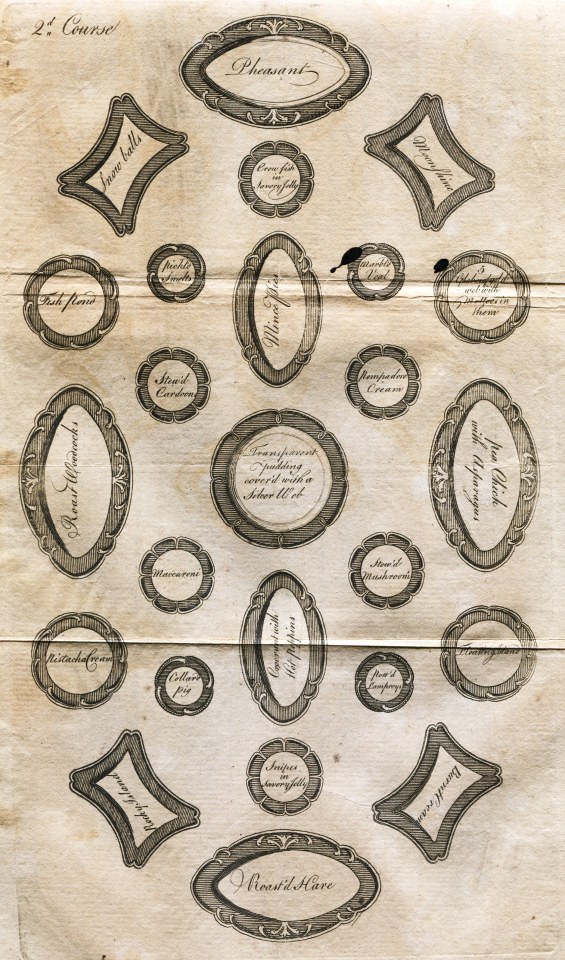
Source: Wikipedia.
To me, service in the French style looks kind of similar to how my Tamil family lays out our meals (as can be seen in the first picture of this meta, minus the pheasant, moonshine and roasted woodcocks...lol). This style of service also looks a whole lot like "family style" dining which can be described as: "when food is brought to the table on large platters or serving dishes rather than being individually plated. Guests then serve themselves from the dishes which are passed around the table." In fact, service in the French style or family style dining is how many cultures serve and eat their food, both in the home and in restaurant settings (whether they use these terms to describe that layout is another matter).
I also seem to recall a couple of soulmates Jeffreys deciding to open a family-style restaurant in 1x08 Braciole (which @bootlegramdomneess has also pointed out in her post here).

In the 19th century, service in the French style became replaced in European restaurants by service à la russe ('service in the Russian style'). This style of service is what Western fine dining and haute cuisine restaurants utilise to this day. It involves bringing courses to the dining table in sequence, one after the other. Courses are portioned and plated before being brought to the diner by service staff.
In the case of Western fine dining, Escoffier shaped haute cuisine ('high cooking') through the use of his French Brigade system and the implementation of service in the Russian style. Haute cuisine has undergone shifts and changes since the 19th century including with the nouvelle cuisine movement in the 1960s which was marked by a focus on fresh produce, paired-back menus and a focus on invention. Haute cuisine of today has been described as a fusion: employing elements of nouvelle cuisine and more elaborate techniques and processes from Escoffier's system.
To my mind, service à la russe involves a lot more people (definitely more wait staff) to have it deployed effectively. When you have more people, you have more room for error (like all those dropped dishes in season 3). Family style service or service à la française allows people to serve themselves. It encourages sharing. Personally, I prefer the latter. Also can we talk about how small the portion sizes are in haute cuisine? lmao. I get it, its art. You need a gigantic plate for a small piece of hamachi because thats the canvas. Some (read: me, lmao) might also say its big ol' waste to wash a plate that size for food that takes up maybe a 1/5 of its surface area. Can we also talk about the concept of "chargers" (which the Computer rightfully rips into Carm and Sydney for in 3x05 Children) - why do you need a table setting that no one's gonna use? I'm sure there's other aspects to haute cuisine that make no fucking sense but honestly this meta is gigantic enough as it is so I'll stop there lol.
Anyway, notably it is service à la russe and food that would be described as haute cuisine that we see at The Bear. Family style is nowhere to be seen in season 3.
Colonialism, Empire and the rise of Western food cultures
A fact that is often left out of discussions about why the French and other European countries developed such globally renowned food cultures as well as their staggering wealth and status as "first world countries" (particularly in the period between the 1600s to the 19th century) was that at around the same time, these nation states were expanding their own empires by colonising other parts of the world with the express purpose of acquiring ingredients (and other resources) that they did not have access to in Europe. A brief and non-exhaustive list of examples below:
Europe's demand for flavour was so great in the 1600s that the Dutch traded Manhattan to the British in order to secure the Indonesian island of Banda Run which, at the time, was the world's only source of nutmeg. When they first arrived in the Banda Islands, the Dutch killed and enslaved much of the Bandanese population, taking control of the island's local nutmeg plantations. This violence would come to be known locally as The Banda Massacres.
It was the hunt for a direct trade route with India for black pepper that Christopher Columbus used to pitch his voyage to the King and Queen of Spain and which ultimately led him to the Americas. Columbus' arrival precipitated the colonisation of the Americas, which resulted in enslavement, disease and outright genocide, decimating First Nations populations throughout North and South America.
The colonisation of the Americas would also lead to the exporting of various foods that have come to be staples in European cooking. For example, the tomato - the key ingredient in many Italian (and Italian American) dishes - orginated in South and Central America and was brought to Europe via Spanish colonists.
The British set up their infamously brutal East India Company (EIC) to control the Indian subcontinent and the trade of various resources including precious metals, opium, textiles (silks and cotton), spices (such as cinnamon, black pepper, nutmeg, cloves, mace) and other food items (like salt, sugar, coffee and tea). The EIC would later be supplanted by the British Raj in Britain's stranglehold on India and after almost 200 years of imperialism and economic fraud, it has been estimated that the British drained India of nearly $45 trillion. I can't even begin to fathom an amount of money that large but the British could, and that theft powered much of the empire during its height.
The influence of Indian ingredients and cuisine spread throughout the British empire, including back to Britain itself. In fact, through colonisation and empire, Indian influences appear in various global cuisines (including other European cuisines as well as in the Caribbean).
Indeed the British's impact on food globally included its colonisation of Australia and New Zealand. These two colonial outposts essentially became gigantic cattle and sheep runs for the British who facilitated the wholesale theft of land - and in the case of Australia, did so without even bothering to enter into treaties with First Nations people - in order to run livestock that was then exported to feed Britain.
In order to satisfy its sweet tooth, France operated huge sugar plantations on the backs of the labour of enslaved Africans, particularly in Haiti (known at the time as Saint-Domingue). In the late 1700s, Haiti was responsible for exporting 40% of all the sugar consumed in Europe. The human cost of this was high and brutally violent. Eventually in 1803, after many armed revolts, enslaved African-descent people kicked the French out of the country after over a hundred years of heinous exploitation (thereby creating the first Black republic in the world). The French were so economically dependent on the colony for its production of coffee and sugar that when Haiti got its independence, France decided to punish the new republic for the loss of future income on Haitian exports, demanding 150 million francs in gold as compensation. The French sent warships to enforce this cruel debt. All in all, Haiti spent approximately $21 billion paying off France for the freedom that its people had already lost their lives and shed their own blood for. The debt (which involved the fledgling republic taking out exorbitant loans and fundraising amongst its citizens) was not paid off until 1947: 122 years after it was initially enforced. The French even charged Haiti interest.
Were it not for its vicious history of slavery and its century-long extortion of its former colony, I'm pretty sure France wouldn't have had the quantities of a certain key ingredient necessary to develop its worldwide reputation for pastries and desserts. I mean, you try making a crème brûlée, an eclair, a tarte tatin, a sweet galette, a mille-feuille, a madeleine, a crepe...without sugar.
This history deeply informs fine dining today. For centuries, Europe underdeveloped much of the world (borrowing Walter Rodney's turn of phrase) through colonialism and imperialist extraction. It then used those spoils and excess wealth to, among other things, develop its own food cultures and then self-proclaim itself as the cutting edge of the culinary world. To be clear, you can only faff about in a kitchen and create fancy sugar palaces and 10-course meals if you have the means and resources to do so. Haute cuisine is a product of wealth and resources, accumulated over time. Europe's colonial history also dictates which cuisines are recognised via awards like the Michelin star system. Hell, it dictates why you have the French (Michelin is a French tire company) dictating what constitutes "good" food in the first place. If you want to read more about this topic, this essay on Medium provides a good overview of the sad, racist state of affairs over at the Michelin Guide.
Where Europeans colonised and settled, this same lens was applied. This is why you have the undervaluing of Indigenous cuisine and ingredients in Australia, a situation which has only recently begun to shift. The colonisation of Australia actively involved the lying about Aboriginal foodways in Britain's attempt to falsely claim that Aboriginal peoples were nomadic hunter gatherers who did not use their land. Its why the history of how enslaved Africans brought their food cultures with them through the Door of No Return and transformed American cuisine, is not more widely known. Its why so few chefs of colour have been recognised for Michelin stars globally.
Empire and The Bear
Season 3 of The Bear pays clear homage to the impact of European empire on the world of fine dining in a few ways. The most obvious is the fact that Chef David's restaurant is literally called "Empire" lol. Another example and one of the most visually striking to me occurs in 3x01 Tomorrow. First, recall Chef David Fields' outright theft of Carmy's dish (I think we've established that you can't get more empire than the theft of food, yes?). Can we talk about how not only did Fields steal Carmy's dish but also, turned it into the most beige meal we've seen on The Bear to date, bar that single sprig of dill fighting for its life?
Carmy's penultimate plate (the final version being The Best Meal That Sydney Ever Had™):
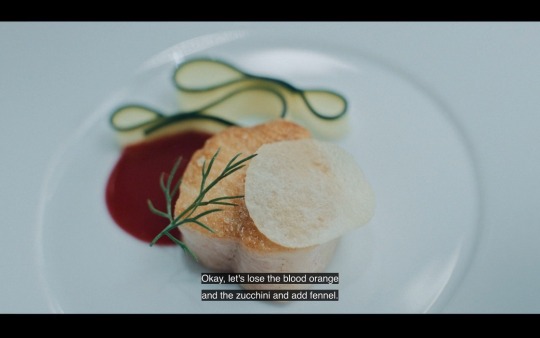
Chef David Fields' dick measuring exercise version:
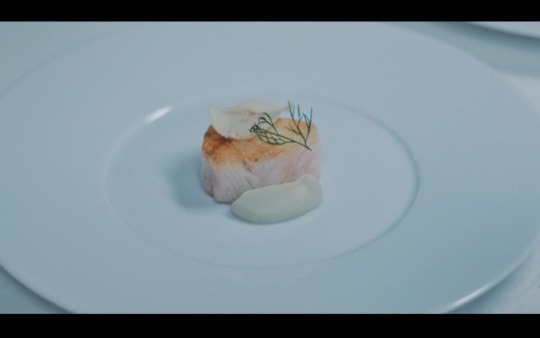
Carm was not a fan:

Can we talk about how the original plate featured the colours of the Italian flag (green, white and red) - emblematic of Carmy's cultural heritage and what is certainly one of the single biggest influences in his culinary journey (the dish also features fish, just like the main course in La Vigilia, the Feast of the Seven Fishes) - but after Fields was done with it, that shit was practically three shades of mayonnaise?
Can we talk about how Carmy's version of the dish almost certainly had a varied and dynamic flavour profile while Fields' looks just how I imagine it tasted like: whatever flavour meh is. The dish literally has no acid from what I can see (ingredients: paupiette of hamachi, fennel soubise, potato chip and dill). And I *know* a balanced dish has salt, fat, acid and heat (cos Chef Samin Nusrat told me).
Can we also talk about how Fields hates the most commonly traded of spices? The one that Columbus was looking for when he landed at what is now the Bahamas. The one that was an integral part of the East India Company's business plan rort to fuck India and South East Asia more generally?
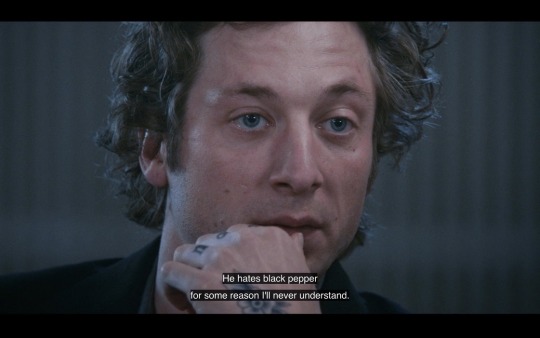
Carmen: He hates black pepper for some reason I'll never understand. (from 3x10 Forever)
White folks in Europe were so hungry for spices to liven up their food that they invaded large swathes of the rest of the world to get the stuff. And yet, here we have Chef Fields, disliking Europe's gateway spice: the one that the Romans (Carmy's ancestors) had been trading with the East for centuries prior to Europe’s imperial frenzy, and which now makes up 20% of the world's spice trade.
Is the man so dedicated to meh that he couldn’t even bring himself to embrace pepper? Used to be one of the best chefs in the world, is right Chef Luca.
On top of dubious taste (I'm not a food critic but no one can tell me that hamachi and fennel soubise dish tasted anything other than fucked lmao. idc idc), Chef Fields is also one of the clear antagonists in The Bear. Along with Donna Berzatto, he is one of Carmy's two primary abusers. His impact on Carmy was never as clear on the show as it was in season 3. Lets take a closer look at that impact below:
Culinary ancestry and intergenerational trauma
Both Donna and David are ancestors of a kind to Carmy. Donna is clearly a biological ancestor in that she's Carmy's birth mother. I've argued here that David Fields is a culinary ancestor to Carmy. For ease of reference, I'll include my explanation of what I mean when I say "culinary ancestry", from that earlier meta, here:
Most folks understand ancestry to refer to our family or genetic lineage. When I was in university, I learned about intellectual ancestors or genealogy: where one can trace your intellectual lineage - the thinkers and creators that have shaped your understanding of the world and/or your chosen profession. I think its useful to take this concept and apply it to The Bear to help understand what the show is saying about legacy. I wouldn't limit the concept to "intellectual" ancestry though. It might be more helpful to talk about culinary ancestors in this context because the process of creating food - crafting dishes - isn't solely an intellectual exercise. It engages our intellect yes, but also each of our senses, our memories (recall that chocolate banana from 2x10 The Bear), and the need to nurture and be nurtured. Culinary Ancestors Carmy's culinary ancestors are varied given his work history. We know he's cooked under some of the best chefs in the culinary world of The Bear, including: Daniel Boulud (of Daniel), René Redzepi (of NOMA), Thomas Keller (of The French Laundry), David Field (a sociopathic Joel McHale, of Eleven Madison Park Empire), and Andrea Terry (a sublime Olivia Colman, of Ever). I'd also include here Mikey, Donna and Natalie Berzatto. I'd include cousins Richie Jeremovich and Michelle Berzatto as well. These are the home and line cooks Carm grew up with, watched in his mother's kitchen and at The Beef. He took his lessons - the good and the bad, learnt voluntarily and involuntarily - from all of these people, incorporated them into his working self and transmuted them into his food.
NOTE: In "Ancestors and The Bear" and in other meta I've written, I've incorrectly noted that Chef David Fields was the EC at Eleven Madison Park (instead of Empire). This was due to the fact that up until 3x10 Forever, we are not told the name of the restaurant that Fields and Carmy worked at together. In the draft script for the pilot, the restaurant is identified as EMP (Eleven Madison Park) by Sugar (see p 23 of that script), however this appears to have changed to "Empire" during the course of the show's development.
Through the lens of culinary ancestry, there is a clear connection between Carmy's wasteful R&D and menu choices in season 3 with the "lessons" he received under the tutelage of Chef David at Empire. For example, and as discussed above, the refusal to serve any dish that isn't viewed as "perfect" led to extreme amounts of waste at both The Bear and at Empire.
Additionally, Chef David focused on "subtraction" (recall his writing "SUBTRACT" on green tape and sticking it to the expo of Empire in 3x01 Tomorrow) and never repeating ingredients in the dishes that came out of Empire. Instinctually, these two strategies appear to me to be techniques to create needless scarcity. They're attempts at repression in and of themselves. Carmy adopts these philosophies and tries to implement them at The Bear as well. They manifest in his unilaterally overhauling the original menu at The Bear (without Syd's input) as well as his insistence that the menu change every day.
Minimalistic subtraction of elements was also a characteristic of Escoffier's approach to cooking which would be taken even further with the nouvelle cuisine movement in France. That movement focused on minimalistic dishes with fewer seasonings and sauces. Chef David Fields is clearly rooted in the French school of fine dining in this approach.
Subtraction also shows up in the show in a more dire way: in the cutting off of relationships and the whittling away of self.
I recently come across a promo still for The Bear. It features Carmy as the CDC of Empire, plating a dish. I've seen the image before but I never noticed the writing on the wall next to Carmy before. It reads:
"Its only after we've lost everything we're free to do anything"
This quote also appears in the 1999 David Fincher film, Fight Club (which itself is based on the book by the same name by Chuck Palahniuk):

Left: Carmen Berzatto, CDC at Empire in The Bear; right: Tyler Durden, general nihilistic fuckwit in Fight Club, also preaching the gospel of David [Fields].
This ethos, written on the wall and haunting the kitchen at Empire is emblematic of how Chef David operates. It reads like a fucked Psalm, giving a poetic shimmer to Field's abuse. Chef David tears down his staff, verbally degrading them to the point that he has the gall to whisper "you should be dead" to them. (OK. Can we...for a minute...imagine being a manager and that being your management style? Telling your best performing staff that they should be dead? Excuse me, mon cheri? A literal devil).
Chef David literally strips his staff of their dignity and their connections to the outside world. He makes them lose their sense of self and claims its all to make them better chefs. He tells Carmen in 3x10 Forever:
Chef David: So you got rid of all the bullshit, and you concentrated, and you got focused, and you got great. You got excellent.
The parallels between Carmy's experience at Empire - and even in the Berzatto household - and the critique of performative violent masculinity that Fight Club was trying to get across are worth pointing out. In Fight Club, white men beat each other up to try and assert control over a perceived loss of power. At Empire, Chef Fields consistently berates and degrades Carmy, clearly threatened by his CDC's talent. Similarly we have Richie complaining about having to take orders from "toddler" Carmy, saying "I was a baby too once, Syd. Nobody gave a fuck" in 1x02 (which could have been the origin story of any one of the men who joined Brad Pitt/Edward Norton to carry out "Project Mayhem" lmao. In fact, I wouldn't be surprised if a lot of the dudes on Reddit fawning over Richie circa seasons 1-2 also watch Fight Club as if it was some sort of aspirational manifesto and not the satire that Fincher intended it to be).
Chef Fields is meant to be representative of a toxicity found in the restaurant industry globally. There have been numerous reports of the physical and psychological violence meted out against kitchen staff by those higher up in the brigade.
Additionally the structure of the French Brigade system is such that those at the bottom - stages - are often expected to work for free. While unpaid internships are common in various lines of work, those industries start to run into trouble when large amounts of their products and services depend on unpaid labour. In fact, darling of The Bear, René Redzepi of Noma faced criticism of his restaurant's unpaid internship program. The internship program was rife with stories of ridiculous working conditions. Redzepi finally began paying interns in 2022 but then announced that Noma would shut down regular service at the end of 2024 due to being unable to afford its staff (at one point, unpaid stages made up almost half of Noma's staff).
The fact that entry into the world of fine dining means people need to work for free as a stage automatically eliminates this as an option for folks who cannot afford to volunteer in order to gain work experience. This would disproportionately impact on certain communities, particularly communities of colour whose members may not have access to sufficient wealth that would allow them to work for free. This is clearly illustrated in The Bear where we see that Carmy has the safety nets and access in place that allow him to stage at various fine dining institutions and gain much sought after experience (e.g. his family's ownership of The Beef and his ability to work there, his cousin Michelle's restaurants in NYC and his access to those spaces). Sydney, Tina, Marcus and even Richie have very different entries into the world of restaurants and fine dining.
The issue of sexual abuse and harassment in the restaurant industry is also very subtly broached in The Bear (though it is more heavily implied in the draft script for 1x01), particularly in 1x07 The Review with Richie accusing Sydney of giving a food critic head in order to get a positive review for her risotto (season 1 Richie was genuinely the worst). But the issue is huge, with more sexual harassment claims filed in the US in the restaurant industry than any other field of work.
Even scrubbing floors by hand and cleaning with a toothbrush, while ensuring sparkling kitchens, have also historically been used as a means of punishment, particularly in institutional settings. During Australia's Royal Commission into Institutional Responses to Child Sexual Abuse, there were numerous reports of children in care homes being forced to scrub floors with toothbrushes as a means of physical punishment and control. (CW: the above link discusses accounts of institutional child sexual abuse).
Given the above, its clear to see that the industry - the system - facilitates a whole lot of shit that its workers are subjected to. So when Chef Adam Shapiro catches Sydney as she leaves the train station in 2x04 Violet and asks her how she's doing, her response is telling:
Sydney: It's been a long month [at The Bear].
Chef Adam: Ah. That bad?
Sydney: No, just-- Restaurants.
Chef Adam: Yeah. Right? Why do we do this to ourselves?
Sydney: 'Cause we're crazy.
Chef Adam: Yeah. What was this month's crazy?
Sydney: Um. The kind that's inherited.
Chef Adam: *Nods emphatically* Understood.
This Financial Times article on the dark side of restaurant culture in Copenhagen, sums things up perfectly:
“We always had this joke, an explanation for why things are so horrible: shit falls down,” [Chef Levi] Luna told [the author Imogen West-Knights], with a cold laugh. In the kitchen, the head chef gets mad at the sous-chef, who gets mad at the person below him, a chef-de-partie, who then takes it out on a stagiaire. Then one day, the sous-chef is the head chef, and he has learnt how a head chef behaves: badly. It should give a sense of the strength of feeling I encountered about how damaging this system is that several people independently described it as being like children who are abused going on to commit abuse as adults. This is the dark flipside of the restaurant-as-family metaphor.
Challenging the status quo @ The Bear
By the end of season 3, Carmy appears to recognise that subtraction in his life is not going to bring him happiness. In fact, in 1x08 Braciole, he identified subtraction - specifically, the cutting out of people from his life - as the reason his life got quiet as he grew more isolated. In 3x10 Forever, when he finally confronts Chef David, Carmy laments the psychic and physical impact of Fields' abuse as well as the isolation it engendered. Fields, psychopath that he is, remained unfazed:
Carmen: You gave me ulcers, and panic attacks, and-and nightmares. You--You know that, right? Do you-- Do you understand that?
Chef David: Yeah, I gave you confidence, and leadership, and ability. It fucking worked.
Carmen: My life stopped.
Chef David: That's the point, right?
Additionally, its worth pointing out that despite all the focus on precision, minimalism and (quite frankly) rage being put into the impeccably plated dishes of The Bear, it's the messy, juicy, multi-ingredient filled Italian beef sandwiches that remain the site's best seller. Indeed, in 3x05 Children, Nat tells Carmy that the sandwich window is the only thing at The Bear making any money. So much for subtraction.
We also see Carmy resisting a total acquiescence to Chef David's approach to running a kitchen early on in season 3. His non-negotiables read in the hindsight of the entirety of the series like his attempt at integrating the lessons he’s learned from various kitchens. It’s why the list says “no repeat ingredients” AND “vibrant collaboration”. We know that vibrant collaboration had to come from someone else’s kitchen cos Fields certainly wasn’t collaborating with anyone. That asshole was out there dictating like a fascist.
Additionally, while Carmy has realised the dangers of the fine dining industry by the end of season 3 (and not for the first time - recall in 2x01 The Beef when he called the Michelin star system "a trap"), and while Sydney grapples with her role as an "accomplice" to Carmy's season 3 bullshit, their protégés Tina and Marcus continue to keep the flame of genuine care, collaboration and inspiration alive. This is most clearly seen during the conversation Tina and Marcus have in 3x09 Apologies where they discuss Marcus' mother and his memories of her as well as brainstorm ideas for Tina's cauliflower, brussel sprouts and horseradish dish (please for the love of gad, give us more Tina, Marcus and Ebra next season).
Challenging the status quo in the real world
There are also actual chefs in the real world who appear to be doing something different with their work: embracing their own food cultures that have historically been locked out of the world of fine dining and also trying to run their kitchens in more egalitarian ways.
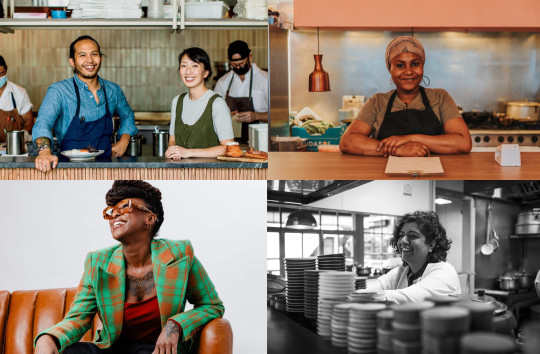
Above clockwise from top left: Chefs Tim Flores and Genie Kwon of Kasama, Chef Adejoké Bakare of Chishuru, Chef Asma Khan of Darjeeling Express and Chef Mariya Moore-Russell formerly of Kumiko and Kikkō.
The first, most obvious example of this for The Bear fans is Kasama, (shout out to @currymanganese and @thoughtfulchaos773 for introducing me to the above linked, short doco) the Filipino American restaurant founded and run by Chefs Tim Flores and Genie Kwon (who also happen to be married) in Chicago. Kasama is also where Carmy and Syd were meant to have their palate cleansing "reset" in 2x03 Sundae and where Sydney may have also been hit on by fellow Coach K fan, Kasama bae (shout out to @sydcarmyfan for verbalising what I squee-ed about on first watch of this episode lmao).
Both Flores and Kwon come from fine dining backgrounds but appear to challenge some of that industry's basic tenets, including the messianic role of the EC as top of Escoffier's brigade food chain. Flores openly states that his cooking is an ode to his Filipino mother who regularly taste tests his food. In the Nick Cavalier doco linked above, Flores states "if [his mother Lolly Flores] eats [the food] and there's no reference to her dish at all, I'm not doing the right thing." Flores and Kwon also operate Kasama using a hybrid model (that I think would send regimental Escoffier into a tailspin) where they offer fast and casual service featuring Kwon's baked goods during the day and offer a Filipino tasting menu led by Flores for dinner service only. Kasama was awarded a Michelin star in 2023, the first Filipino restaurant in the world to achieve that title. It also took home a James Beard Award that same year.
Note: if you haven't already, have a read of this interview of Tim Flores and Genie Kwon conducted by the Michelin Guide. ISTG Storer and Calo have read this and lifted whole paragraphs for The Bear's script. An excerpt that stood out to me, in particular:
The two first met at Bib Gourmand restaurant GT Fish & Oyster, also in Chicago. "He was leaving as I was starting. So we didn't overlap for very long. But I actually went to eat at the restaurant that he was working at afterwards, and I had one of the best experiences of my life at a tasting menu. And after that we started talking and hanging out, and eventually started dating," recalls Kwon about how she and Flores first met.
Sounds a lot like a couple of Jeffs we know, yes?
Also check out Chef Adejoké Bakare, who in 2024, became only the second Black woman to get a Michelin star in the world (the first being Chicagoan Mariya Moore-Russell who announced in 2020 that she was taking a break from her career for her mental and physical wellbeing and who also...is married to a chef lol). Bakare's restaurant, Chishuru in London, specialises in West African cuisine rooted in Bakare's Yoruba, Igbo and Hausa cultures. Bakare, like Genie Kwon, has a background in biological sciences. She also began her career as a home cook, then ran a fish and chip cart while studying at university in Nigeria. Once she moved to the UK, she ran a supper club and later won the opportunity to run a short term pop up restaurant. During the ceremony where she got her Michelin star, Bakare noted "[i]t did feel rather odd at last night's ceremony that 90% of the room was white middle-aged men. But the passion I see among young women in the industry is such that I'm confident things will change."
Take also Chef Asma Khan, who got her start in the industry as a home cook and then began running supper clubs out of her house in the UK. She then opened up the Darjeeling Express with a group of South Asian women she had met when they were all fairly recent arrivals in the UK, none of whom had formal culinary training. To this day, her kitchen remains fully staffed and run by women.
In this TEDx Talk about her work, Khan says:
"I wanted to cook but I actually wanted to feed people. This gave me the greatest pleasure. I felt at my most powerful when I was able to serve someone something I had cooked. In some ways it was my way of showing affection and love, and being able to give them something that took them home."
Sounds familiar yes? Like a couple of Jeffreys in season 1 of a certain show?
About the systemic sexism in the industry, Khan says:
"But at that time, in England, anywhere in the West, everywhere you looked it was male chefs you saw that was on television [...] in the media. It was always about men who were cooking kitchens. The greatest irony of it all is that [...] in every South Asian home you go to, you will invariably find a woman [cooking] but in every South Asian restaurant you go to, not just in India but in Pakistan, Bangladesh, Sri Lanka, almost everywhere in the world, you will usually find a man cooking in the kitchen. And it was a desire for me that I wanted to cook but there was no road or route in front of me."
Khan elaborates further on the skewed and gendered manner in which elite fine dining operates, in this article:
“There is no public hanging [in her restaurant]. Male chefs have made cooking into a combat sport. I think it’s a reaction to the idea that cooking is feminine: I’m not the dinner lady! I’m not your grandmother! Sorry, but if you’re constantly screaming at staff it means you’ve trained them badly.”
Khan is describing the hyper-competitive nature of fine dining (and her suspicion that in a highly gendered industry that is populated by majority men, that there is a need to perform a hypermasculinity in order to put distance between themselves and the historically feminine-gendered roots of the act of cooking) and how Khan wanted no part of it, for herself, her staff or her patrons. In this Guardian article, Khan points her attention directly at the toxic work cultures of many fine dining institutions:
Khan sees herself as a vital heckler on the sidelines of the industry, rather than part of its elite club of star chefs. She is especially scathing of a macho restaurant culture that has allowed workplace bullying and abuse to become normalised – and of those who enable it.
“My deep concern during the pandemic is seeing very prominent people with considerable wealth remove the entire workforce without a safety net.” A surge of restaurant and pub workers were reported to be sleeping rough in central London in April, a fact Khan can’t shake. “It is so shameful, my heart bleeds for the industry, it is immoral. I don’t want restaurants to be ranked by Michelin stars for the fluff and edible herbs they put on a plate. I want to know how they treat their people, they should be ranked on that. Where there is bullying and racism, where there is sexual harassment, where staff don’t feel safe, people should boycott those restaurants. I don’t want to see them prosper.”
Honestly, after reading some of the horror stories about work place practices in the restaurant industry, I'm with Khan. I'm also with Flores, Kwon, Bakare and Moore-Russell. I reckon Storer and Calo are also with these folks too and that we're going to see a shift in season 4 of The Bear that reflects the larger industrial change in the world of fine dining that chefs like these are heralding.
The death of fine dining
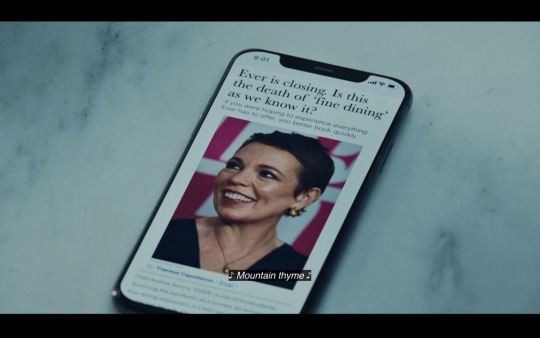
Above: Carmy's phone in 3x05 Children
Like @freedelusionshere says here, I don't think its a suprise that season 3 ended with Ever's funeral. The fine dining of Empire and even Ever is dead. How can it not be given the way its been largely running to date, as discussed above? How can it not be when we are living in a time of severe food insecurity precipitated by runaway consumerism and the twin existential threats of global climate and extinction crises. How can anyone in good conscience justify charging exorbitant amounts of money on a plate that is not going to fill patron's bellies while there are communities worldwide who do not have enough food to feed their children? When some communities, even in so-called "first world" countries like America and Australia cannot access clean drinking water?
Truly, the argument for fine dining posited by Will Guidara in 3x10 Forever made me (and I'm sure many others) actually cringe.
There's nobility in this. [...] We can give them the grace, if only for a few hours, to forget about their most difficult moments. Like, we can make the world a nicer place. All of us in this room. We have this opportunity, perhaps even a responsibility, to create our own little magical worlds in a world that is increasingly in need of a little more magic.
There *is* nobility in nurturing people, in feeding them. But in a time of the multiple and rolling, global existential crises, where particular communities are being targeted not just for marginalisation but whole scale eradication, this is not a time for more "magic"; particularly when those "little magical worlds" are reserved for the select few who can afford them. We don't need more holes to bury our heads in. We need real spaces of care that are accessible, kind (read: not nice, but kind. there is a big difference) and nurturing. And those spaces need to be those things not just for the patrons who visit them but also for the staff who work there.
There is also literally no time for escapism, at least not of the kind that late stage capitalism promotes and as described by Guidara in 3x10. We are living at a time where food systems are said to make up one third of all greenhouse gas emissions, pushing the climate crisis further to the point of no return. What's the point of making magic worlds to escape an actual world on the brink? And while your magic-making contributes to the brink getting closer? Its like putting lipstick on a pig.
Indeed some have posited that it was the British Empire's remaking of the world to feed Britain (which we've looked at briefly above) that has been the single biggest contributor to the current environmental crises facing our planet. The Bear acknowledges the issue as well. Recall 2x04 Violet when Tina visits Jerry at the farmers' market and his explanation for why he has so little produce to sell:
Jerry: There's fewer and fewer moths to grow vegetables now, and 'cause of that, there's fewer and fewer farms. Used to be you could come down here, buy everything you needed for a full menu. All in one spot. Whatever grows together, goes together.
The reason there are fewer months to grow vegetables is because of climate change which has impacted on everything to season length, groundwater and rainfall levels (as the two main sources for global farming irrigation) and increased periods of drought and heatwave.
So whats next for The Bear?
Season 3 put us through the ringer with Carmy replicating toxic practices in his restaurant that are rife in the industry at large. Yes, Carmy also has mental health issues and is a survivor of multiple sources of trauma. We know this. I've talked about this at length here and here. But he's also a guy who's running his own business with folks who are dependent on their place of work for their livelihoods. As such, he, Nat and Uncle Jimmy (as co-owners of The Bear) have responsibilities to their staff.
As EC at The Bear who is directly responsible for managing BOH, Carmy has a choice to make about whether he "blows his trauma through" (shout out to Dr Resmaa Menakem and his book My Grandmother's Hands) the bodies of those closest to him, including the crew at The Bear. Just as parents have to work on themselves so that they don't replicate harmful patterns of behaviour in raising their children, so too do we all in our daily relationships, including where many of us adults spend most of our waking lives: at work.
Like Richie observed, Carmy is not integrated in season 3 but neither is the industry in which he's working. A menu that constantly changes, wasteful food practices, a food production and agricultural industry that contributes to a third of global greenhouse gas emissions leading to increased global warming. These things are absolutely not integrated. In many ways, Carmy's mental state in season 3 - anxious, agitated, exhausted, is a reflection of the times. Given all of the above, Carmy's "I'm so fucking sick of this" in 3x09 Apologies hits me harder in the chest. Yes Carmy, you should be. Now go do something about it.
Having looked at the career trajectories of a few talented, conscientious chefs in the course of writing this meta, I think its pretty clear that the old way of running restaurants a la Chef David Fields is over. As we sit at the precipice of climate disaster, watching multiple genocides unfolding at once, during a time of massive food insecurity, who the hell has time to be suffering in the way Chef David made his employees feel in the course of making food that is meant to nourish people? What fucking cognitive dissonance is required to continue on THAT kind of a path?
Come season 4, I reckon we are going to see a massive shift in the trajectory of The Bear. This will be precipitated by multiple things (like the review Carmy got at the end of 3x10 and whatever the fuck Uncle Jimmy is up to with that box and those golf clubs lol) but most significantly, by a realisation on Carmy's part that his version of Michelin mode IS NOT IT.
I reckon Carmy and Sydney are going to continue to work together but they'll go back to the original plan they made with one another in 1x08 Braciole. They're going to go back to family style. They're going to treat their staff better (after Carmy apologises lol). They're going to shift from wasteful, haute cuisine to sustainable food practices that support producers and the planet more broadly. They're going to leave Chef David Fields' scare tactic of subtraction behind and lean into using more pepper.
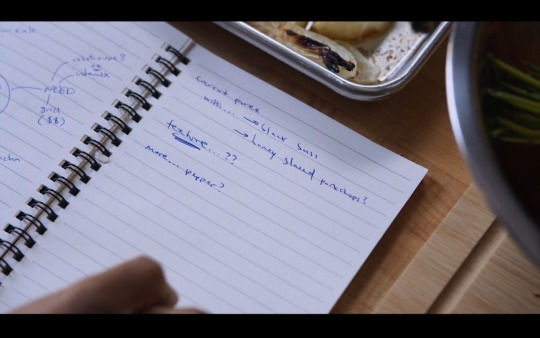
Above: Sydney's notebook as she workshops a recipe at home in 1x08 Braciole.
Tagging: @moodyeucalyptus @currymanganese @hwere @freedelusionshere @thoughtfulchaos773 @ambeauty @brokenwinebox @devisrina @espumado @fresaton @kdbleu @vacationship @birdiebats @bootlegramdomneess @mitocamdria @tvfantic87 @angelica4equity @anxietycroissant @turbulenthandholding @yannaryartside @afrofairysblog @ciaomarie
cos you may be interested but as always, I'd love to chat to whoever wants to about this stuff!
#my next meta will not be nearly as long as this...i hope.#this one took months lmao#just in time for the end of#sydcarmyweek2024#sydcarmy week 2024#the bear#the bear fx#the bear hulu#the bear meta#sydcarmy#carmen berzatto#sydney adamu#the bear season 3#mariya russell#asma khan#kasama#adejoke bakare#genie kwon#tim flores#chishuru#darjeeling express#good luck at the emmys bear crew!
127 notes
·
View notes
Note
can you make a list of specific relationships tropes(platonic or romantic) pls🫶
List of Relationship Tropes <3
Hope this helps! :) If you like my blog, buy me a coffee☕ and find me on instagram!
Romantic Relationship Tropes:
Friends-to-lovers
Enemies-to-lovers
Forbidden love (it can be an external or internal taboo)
Stuck together - 'trapped in an elevator'
Secret identity (billionaire/royal/celebrity in hiding)
Best friend's brother/sister/ex
Seconc chance romance
Soulmates (soulmate AU prompts)
Fake relationship
Wedding fever - runaway brides/best men/wedding planners/ jilted
Amnesia/mistaken identity
Holiday romances/flings
Opposites attract (similar to enemies to lovers)
Academic rivals (high school/ college)
Unrequited love
Sunny vs. Grumpy
Pen pals to lovers
Matchmaking gone wrong
Sworn off a relationship (then falling in love, of course)
Single parent with new love
Arranged marriage (Arranged Marriage Prompts)
Return to hometown & fall in love with your childhood friend
Bully turned out to be the nice guy
One person being afraid to commit + the other chasing them
Falling in love with someone from the past/future
Tiny guy, huge girl
Other Character Dynamic Tropes:
Badass and child duo (usually, the child will be extraordinarily mature/capable)
Battle couple (like Mr. and Mrs. Smith vibes)
Blood brothers
Brother-sister team - bickering but working perfectly together
Intergenerational friends - being best buddies with your grandparents, which your parent doesn't understand
Translator buddy
Talker plus Doer duo
Student and Master team
'Sensitive guy + the most macho guy ever' duo
Rivals-to-friends
The Shy Guy/Girl + the outging wingman
The popular girl/guy + the copycat
Ride-or-Die found family
A childhood enemy becomes a central part of a friend group
Parents who see their kids become best friends too
Orphans from the same orphange
Long lost siblings finding themselves in each other
A straight girl + lesbian as bffs / a straight guy + gay guy as bffs, becoming each other's wingmen/women
a secret handshake or unique SOS sign that only they know
Girl code/bro code/friendship code
Having set routines, like meeting under ---- tree at --- hour
Family Tropes
Adoption angst
adult adoptee - an adult character is adopted into a different family despite being legally of age
Awkward parent-child bonding efforts
Babies ever after - the child is forever a baby to the parents
Black sheep/ugly duckling
Cannibal clan
Feminine mother, tomboyish daughter
Obnoxious in-laws
Twin Tropes
Angst surviving twin - on twin dies so that other becomes nervous
Single-minded twins - can have a creepy twist...
Evil twin
Playing their own twin
Twin telepathy - twins can pick up on each other's thoughts/emotions
#writers and poets#writing#creative writing#writers on tumblr#creative writers#helping writers#let's write#poets and writers#writeblr#resources for writers#writing help#writing heals#writing habits#how to write#writerscommunity#ao3 writer#writers#writers block#author#write#writer#writerscreed#writer stuff#write that down#write it#write anything#write every day#write up#write me#writing inspiration
199 notes
·
View notes
Text
tuesday again 3/18/2025
in which we read a lesbian romance where the highs are pretty fuckin good and the lows are not so pretty good
listening: the giver by chappell roan
reading: a bella books update, but mostly Beautiful Journey by Kenna White
watching: fallow week
playing: genshin (!) and Pokémon
making: garden update, rit dye bounty
listening
new single out. i want to hear this in EVERY commercial this summer
-
reading

special shoutout to a blazed tumblr post that led me to Haden Cross’ Uncontinented Stars, a queer moby-dick retelling. before you dismiss it out of hand here are some of my thoughts about how it neatly avoids some common queer retelling pitfalls
in this gay and lesbian romance project, i really think (one of) my (big) problem(s) is with Bella Books specifically as a publisher and their lack of quality control or editing assistance, but we are closer to done with them. with the bella and naiad conglomerate, i have two books of short stories (one naiad one bella, neither with covers i can take to work) and two more naiad originals after this. i will be breaking them up into three weeks in between kim baldwins (the insane lesbian bunker mercenary one i enjoyed).
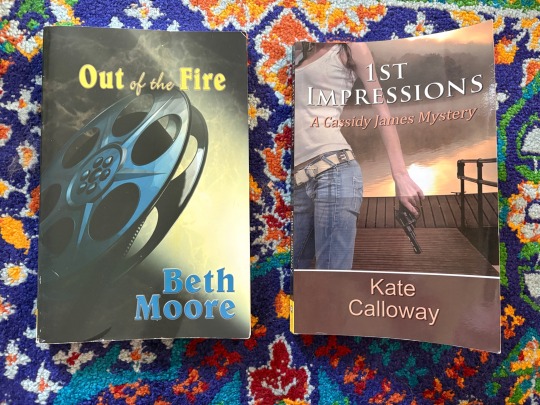
three up this week: could not finish the one on the left due to a printing error with random missing pages, could not finish the one on the right bc of a hard-out trigger.
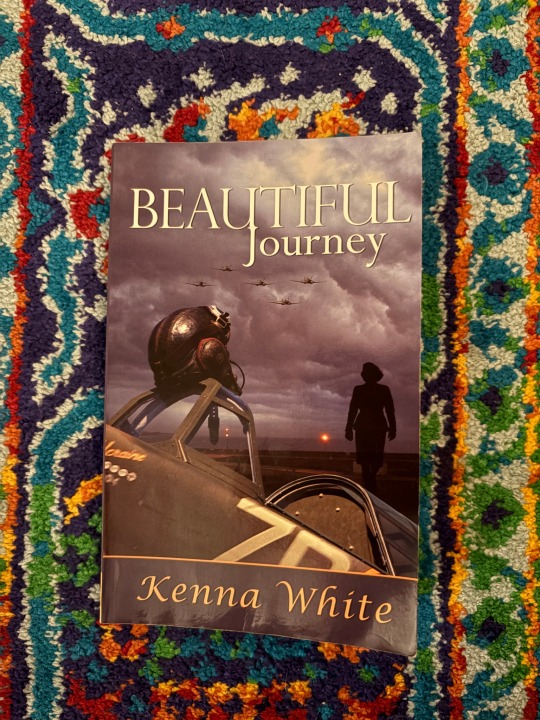
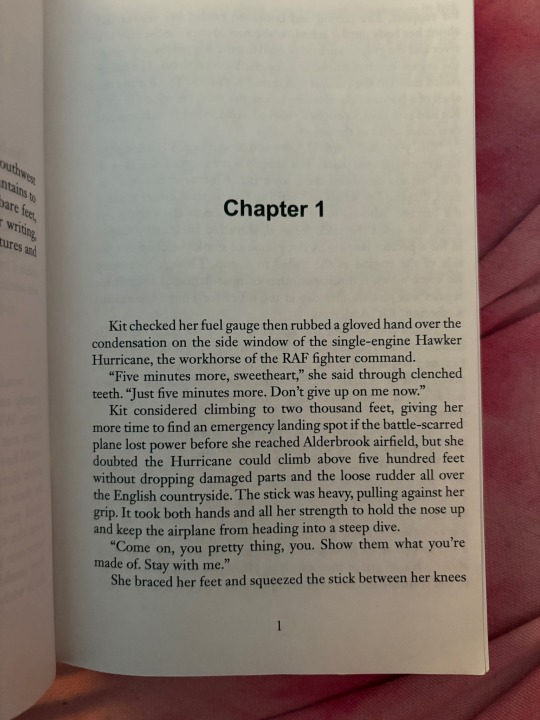
this is Kenna White’s Beautiful Journey, a 2008 Bella Books original (not acquired from Naiad), 276p softcover with a worse than usual application of glue to the perfect bound binding.
Kit Anderson is determined to make a difference. All around her the Battle for Britain is raging, and ferrying factory-fresh airplanes to combat bases makes excellent use of her skills as flight lieutenant for the British Women’s Air Transport Auxiliary. An American in southern England, she is undaunted by war. It’s safer than love.
The talented aviatrix could fly a crippled craft through a thunderstorm without a compass and find her way home, so it is singularly disconcerting to find herself flying in circles around Emily Mills, a too young, too attractive and too abrasive British literature teacher. Even though Emily’s grandmother is Lady Marble, it’s a time of war and scarcity and Emily needs work. Kit offers to help her find a job on the air base—and as is often true, no good deed goes unpunished.
i had zero expectations from a bella books book (and there were still a handful of misspellings and formatting glitches) but on a scene by scene level, White is excellent at setting a scene and making it come fully alive with a sort of forties wartime romcom slapstick vibe. in the back half there’s a very good very coen brothers scene with ornery pig farming lesbians, married for twenty-eight years, who (after holding her at shotgunpoint and wanting to see the American label in her American silk underwear) help Kit get her plane out of a field after an emergency landing and some intergenerational bonding. to which she gifts them her silk parachute as an anniversary present. there’s a great dramatic romantic set piece during a daytime air raid in London, where they flee a claustrophobic, unhygenic tube station and shelter outdoors in an alcove (very stupid). a big dramatic kiss to comfort someone and distract them from a panic attack. that sort of thing.
contains one of the worst reactions to a first orgasm i have ever read: i texted my bestie in horror “American lesbian successfully seduced British lesbian (found out she was a virgin, got her clothes off) and after she made the British lesbian come the British lesbian BURST INTO TEARS AND RAN OFF INTO THE NIGHT” HELLO??? EMILY WHAT??? while this is a BONKERS thing to do in real life i must applaud this specific bella book for making me go HELLO??? in this way and not in frustration bc i want something! anything! to happen. good decisions are out interesting decisions are in etc. bella books sets SUCH a low bar.
also contains straight up one of the most effective scenes ive read in this project so far, that made me tear up AT WORK:
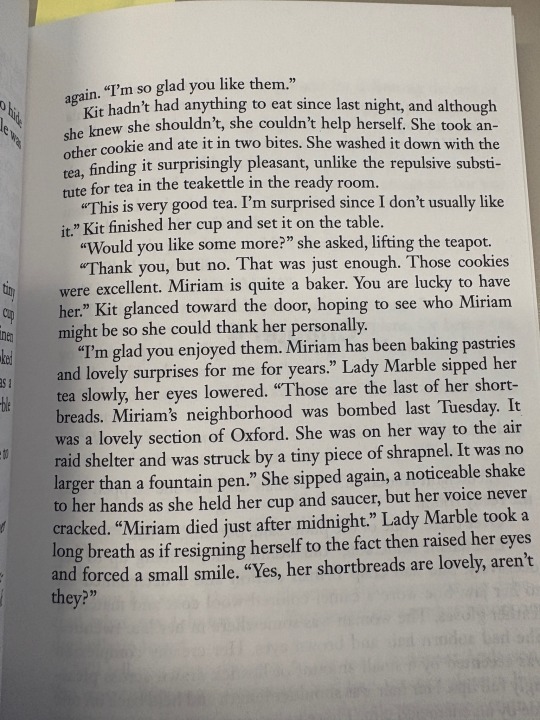
the book has a very water-themed series of mishaps (walks in on Kit while she’s having a bath, drenches her with dirty water from a kitchen pot, doesn’t set the brake on a truck and Kit has to drop flat in the mud for the truck not to run her over, Kit ends up going back in the rain to rescue Emily from a thunderstorm, Kit rescues Emily from a river overrunning its banks, at least one more thing i can’t recall). this is a pretty amusing lesbian getting-you-wet schtick without doing a russo brothers HEY IM GETTING YOU WET. GET IT? WE FUCK NOW? and does supply some believable friction for the “why can’t they be together NOW” question. they can’t be together now bc emily is a walking disaster.
unfortunately i think this book is much weaker in the last third of the relationship, and the way they resolved their misunderstanding from an accidental eavesdrop felt like it could be very forties romantic drama in the eventual film adaptation, but felt very flimsy as a modern reader. i hope that makes sense. wretched ending, i did NOT enjoy the Kit spanking Emily scene to get her to confess why she broke up with her in the LAST THREE PAGES. it felt very strange when they were so focused on being soft and gentle for the rest of the book, and i don’t think that’s a good place to rebuild a relationship on.
yes, and the sex?
certainly better than all of the other bella books sex scenes: three? i think? with one nearly a full chapter long. i wish some of the word choice (eg “honey path”) was different. i think White’s strength is in groups conferring amongst each other and establishing non-romantic relationships, but she’s good at making me invested in them because they have so much frustration to overcome and have to establish a friendship beachhead before they can get to anything romantic.
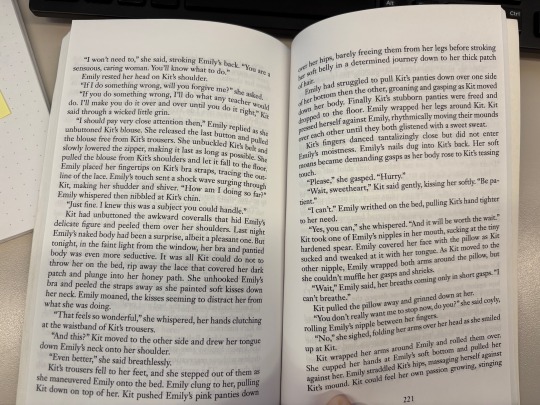
by far the best bella book with some really standout individual scenes, but still a very mixed bag. i will probably keep it on the strength of that shortbread passage alone bc. OOF. i think it was worth slogging through the bella/naiad books for that.
-
watching
rare fallow week! hopefully i will sort myself out as i get used to working in person and need less completely silent floor time. hopefully.
-
playing
no news on the desktop front unforch BUT i did finally have a phone upgrade tick around and good god. going from an iPhone 12 to a 16 plus is insane. this thing is enormous. i get WHY genshin makes a billion dollars a year on mobile bc this looks sick but my god do i prefer mouse and keyboard. i feel a billion years old. i am glad i can get in and do my dailies and some events but i am nowhere near confident enough to do like. the fighting part of the fighting game. anyway, get a load of this guy and his thigh high demonias

with this guy the only other guy i really really want is pink fox lady Yae Miko. and woman of mystery Skirk. whenever the fuck she drops. so glad i was grinding before my pc died lol bc i dropped three mil in-game currency on making sure my beautiful sad man has maxed artifacts maxed weapon and talents to 8/10. he would be totally maxed but i have One! ONE! boss drop left and can’t quite clinch it yet on mobile. i may have to drop the difficulty level down as far as it will go :( i cannot git gud :(
but get a load of this other guy!
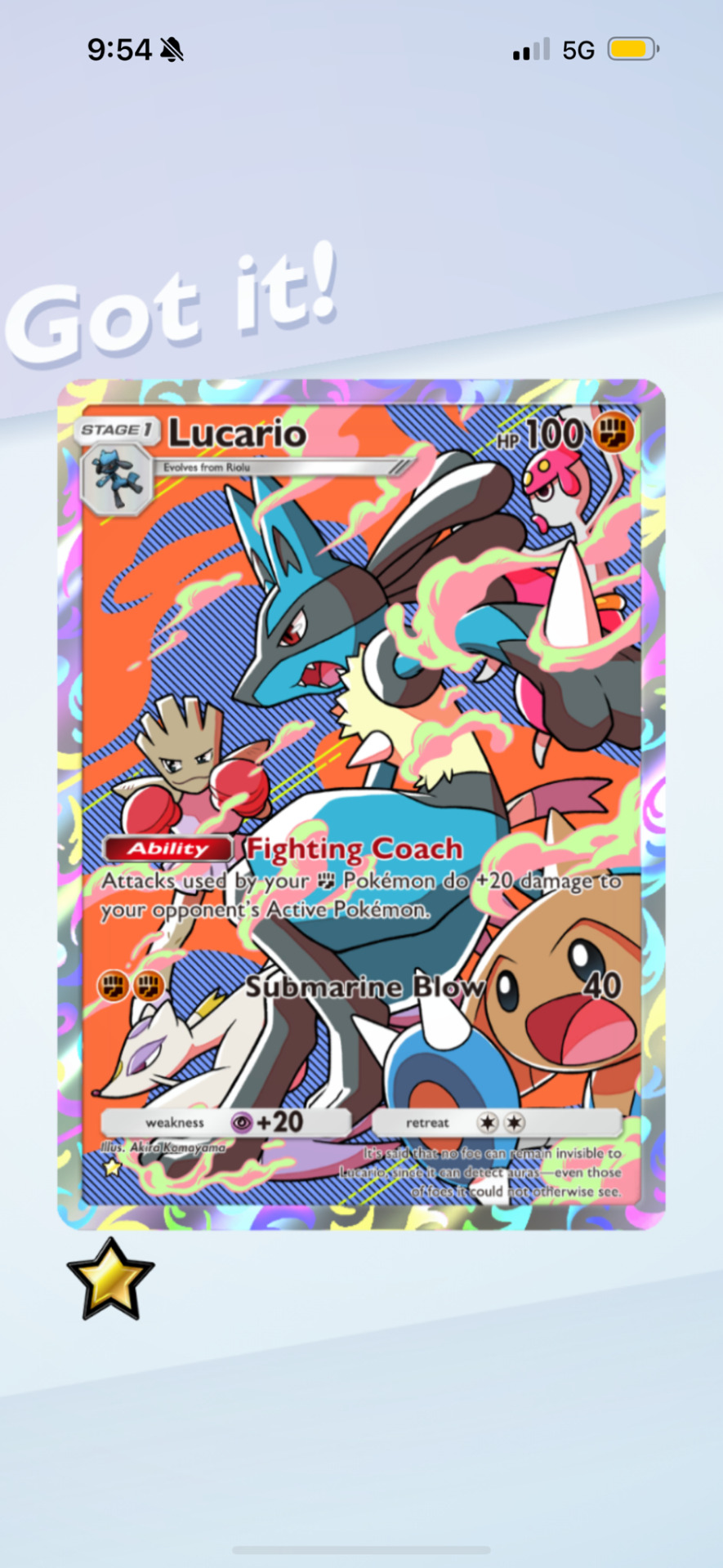
-
making
continuing battles with the insane microclimate on my balcony, which is extremely hot and dry yet i am constantly battling drainage issues and a fungal damping-off issue, where seedlings wither at the base before they get their first true leaves. also having a strange issue with things simply not coming up: the purple bush beans and lettuce mix i bought last year, and half the marigolds i bought this year don’t want to sprout At All even in a damp paper towel in a baggie. they’ve been kept in the cool and dark. so what gives.
however, the nearly six year old butternut squash seeds @shiny-good-rock sent me at the beginning of the pandemic? all four of those babies came up. while they sort themselves out into something photogenic, behold my beautiful little satellite array of nasturtiums. they need to be moved around a bit so they all have breathing room but that’s a problem for future kay
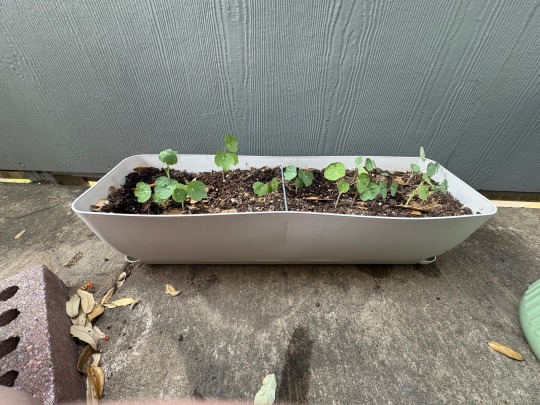
and finally, i so rarely enter giveaways but i entered one on Instagram and got a stupid mchugelarge box FULL of rit dye!!! i am going to commit so many synthetic crimes. gorls THRILLED by big box and so much paper
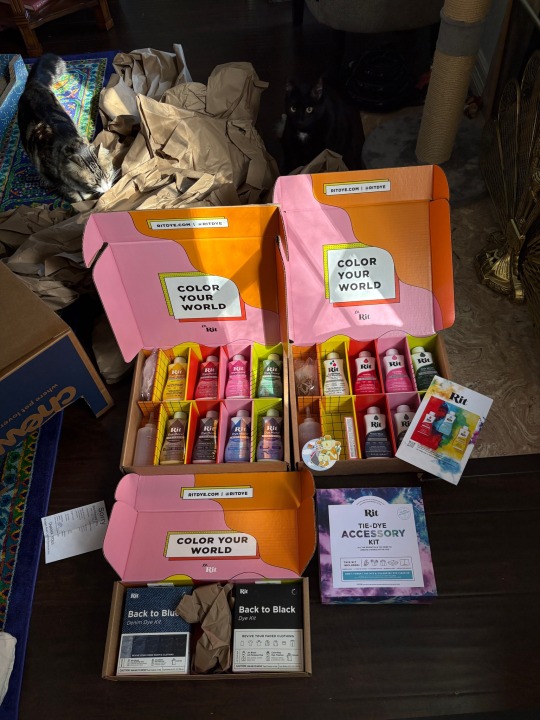
33 notes
·
View notes
Text
I haven't been involved in the captain underpants and adjacent fandoms in a long while but... is it totally out there to think that maybe Mr krupp finally got over himself and started talking to the kids about their stories, helping edit them with lil post its on the pages (angry lil spell checks and copy notes but george appreciates it anyway) and discussing the stories had him start getting creative and he helped write some of the more "serious" elements of the dogman comics with them?
and him getting to bond with them and not be so lonely and isolated, and be a proper principal for once, working with kids who are creative and smart but could use a bit better adult influences in their lives, and helping relate to them in a way that says "yeah I experienced this rly sucky thing too and it's rough but you get through it eventually... hey, I mean, look at me now" (which is not exactly super reassuring but harold gets what he means)
I just rly love the potential for intergenerational friendship with these guys, esp in the movie version, and it would make sense to me for him to potentially challenge their work and help them improve, esp considering he's a previously silent fan of their work
30 notes
·
View notes
Text
I loved AKATSUKI, I really did. Their passion had my heart. The names Keito, Kuro, and Souma felt like a warm embrace. But what Happy Elements did is unforgivable. I cannot support them anymore. Farewell Enstars, it was an interesting ride.
If anyone's is interested, DM me for the link to a Google Drive containing all of AKATSUKI's discography from 2015 - 2024. Feel free to save. Continue the boycott.
This includes:
full discography
album cover photos
complete credit and labelling of names

LONG RANT AHEAD! (mentions of imperialism, w@r, abus3, d3ath, SA, and r@cism are ahead. read at your own risk!)
I got into Enstars because of Umehara Yuichiro (Keito's VA) and of course, that automatically made me support AKATSUKI. However, going into their stories and getting to know each character, I really fell in love with them. I loved their songs, I loved what they represent.
When Happy Elements announced that Ibuki was joining, I was confused. 10 years of bond was wasted, just like that. Upon further research, I became disgusted at what the company implicated with Ibuki's arrival. It meant erasing his identity as part of an indigenous minority group to be assimilated to the the culture of his colonizers. It hurt me, not just personally, but it felt like I was struck with intergenerational trauma. My heart, that was once embraced by the love I have for Keito, Kuro, and Souma, suddenly felt like it was locked in a chokehold. Ibuki Taki did not deserve this treatment. Happy Elements shouldn't have made a character with an indigenous background if they're only capable of disrespecting and trashing on their culture. Ibuki Taki should have shined on his own.
Again, Ibuki Taki and Chiaki Kobayashi (Ibuki VA) doesn't deserve this.
See, I came from a country where Imperial Japan invaded, colonized, abused, tortured my ancestors. They came to destroy our culture, violate our people, and for what? For the assimilation of culture—they said. But was it? While they spread their propaganda and taught their culture and language, they also belittled, discriminated, t0rtured, and s3xually vi0l@ted our people because they were r@cist and x3nophobic. It's not surprising that a lot of them are like this until now (not generalizing every Japanese again). Our blood was deemed "below" them despite being their fellow human. Men, women, and children alike, they did not choose. And until now, they haven't apologized to those countries they ruined and even demanded to take down statues that commemorated the heroes and their suffering of those horrific years. Disgusting; revolting, truly.
My grandmother's father was taken by the Japanese soldiers. He was t0rtured and hung to d3ath inside a prison filled with decaying corpses. Until a flood that decimated that underground prison, their bodies would not have been found. Right now, their bodies lay at a mass grave, honored but unnamed. My grandmother's mother di3d in the bombings and she was forced to retrieve her body, clean it, dress it up, and bury it. My grandmother was only 9 years old when that war happened. She hid in between the crevices of thick stone walls that were constantly bombed. She told me, everyday she would wonder if she'll get crushed inside these stones soon. Everyday, she feared not satisfying a Japanese soldier by mere bow and will be taken into a den where women were captured, abus3d, and vi0lated day and night, again and again. For days at a time, she hid inside barrels just to retrieve food for her and her younger siblings' survival. She was orphaned and captured by the Japanese soldiers, fed propaganda, and forcibly taught their culture, and yet, her spirit remained strong, at such young age. If not for my ancestors, then at least, for her.
Despite AKATSUKI's Yamato-themed concept, I supported them. What AKATSUKI represented was not Imperial Japan, not the Meiji Period and onwards. AKATSUKI celebrated tradition and culture through the modern arts. I loved how they incorporated these concepts. Although they had their hiccups along the way (i.e. the Dance of Swords, Imperial-themed costume), I still supported them. I love what each member represented, especially Keito's integrity and devotion. But what they did with Ibuki's introduction, the absolute fuck up of Keito's character, and now, the rerecording of the songs, and the new music videos? My heart just shattered. The Rising Sun flag of Japan is a symbol of w@r, bloodshed, and trauma for the generations of people they vi0lated, and to symbolize that in Hyakka Ryouran's new MV? A beautiful song about a beautiful spring? Absolutely disgusting. They cannot have my support anymore.
Keito's entire character was trashed. His ambitions and devotion were forgotten. The words he uttered are not the words he will say; the actions he did are absolutely acts of betrayal. He will never do that to Kuro and Souma. Never. All of this bullshit, and for what? R@cist propaganda? Furthermore, Souma looked utterly out of character. He's angry and devastated—that's not him. He is hopeful and absolutely elegant. Was killing your beloved characters worth it? Shut the fuck up, Happy Elements. You will never witness the moment where their songs reaches the fucking Billboard Top 10 ever again. This is not just outrage but, absolute tragedy.
I will still love AKATSUKI, but the version where there's only three of them. I don't want to engage in content about the new AKATSUKI because it will only taint my precious memories of the three members. It really hurts. I feel like crying. Although, if I happen to upload fanfiction content about AKATSUKI in the future, it will absolutely be canon divergence because Happy Elements is just a fucking untouchable slop that even bacteria wouldn't touch.
#ensemble stars#enstars#kuro kiryu#souma kanzaki#keito hasumi#ibuki taki#akatsuki#enstars akatsuki#a uncomfortable discussion about ensemble stars and happy elements
41 notes
·
View notes